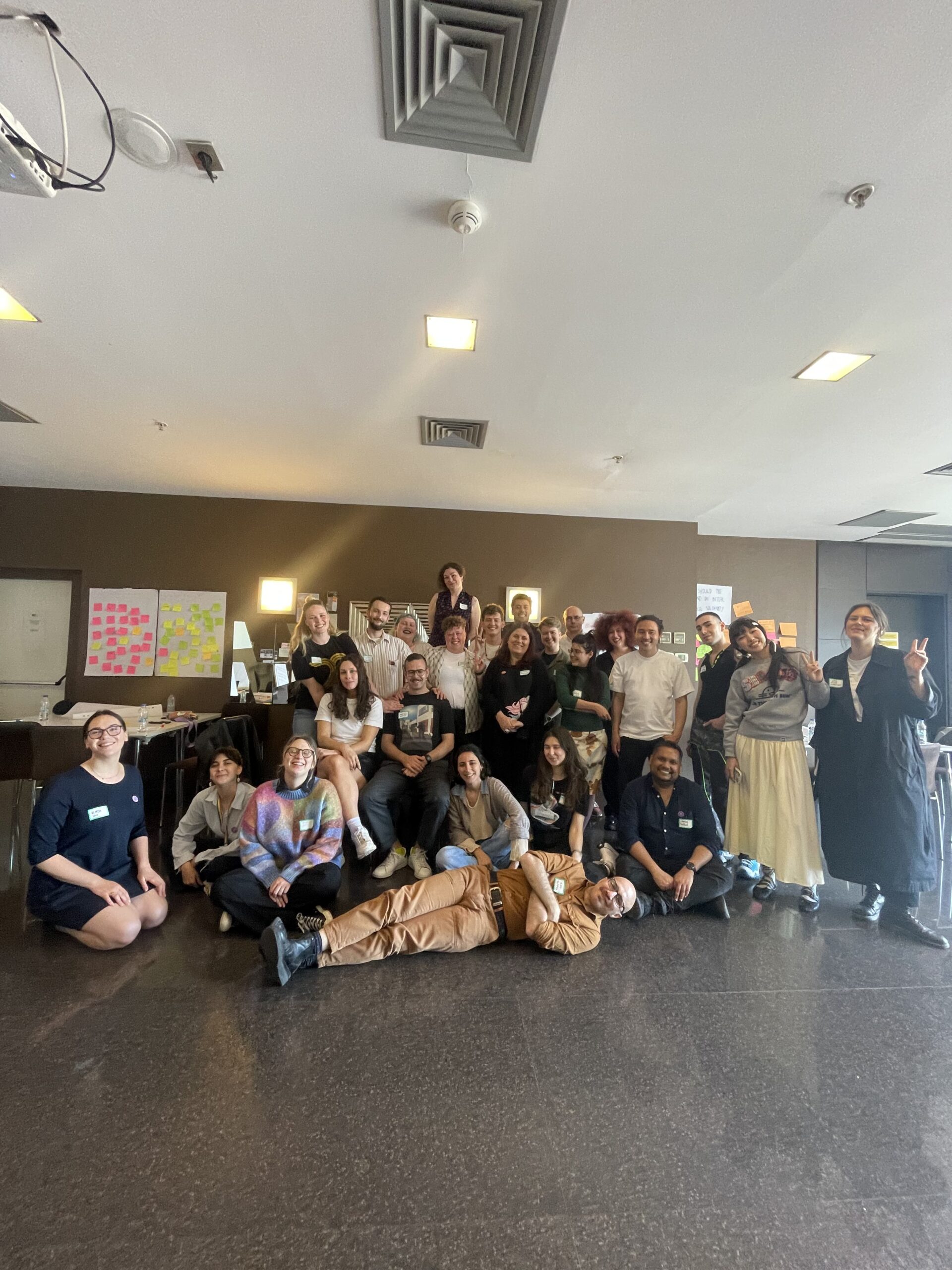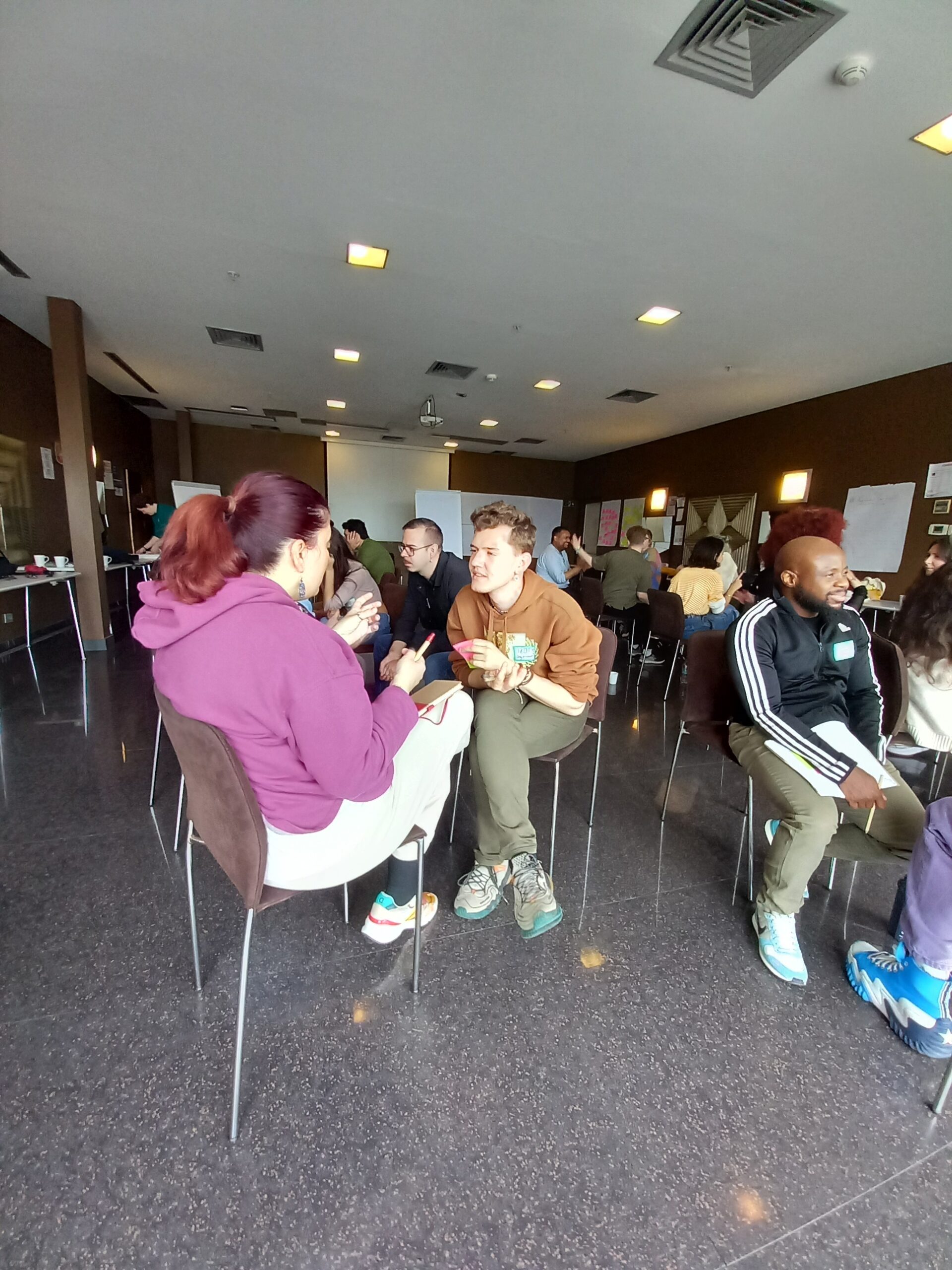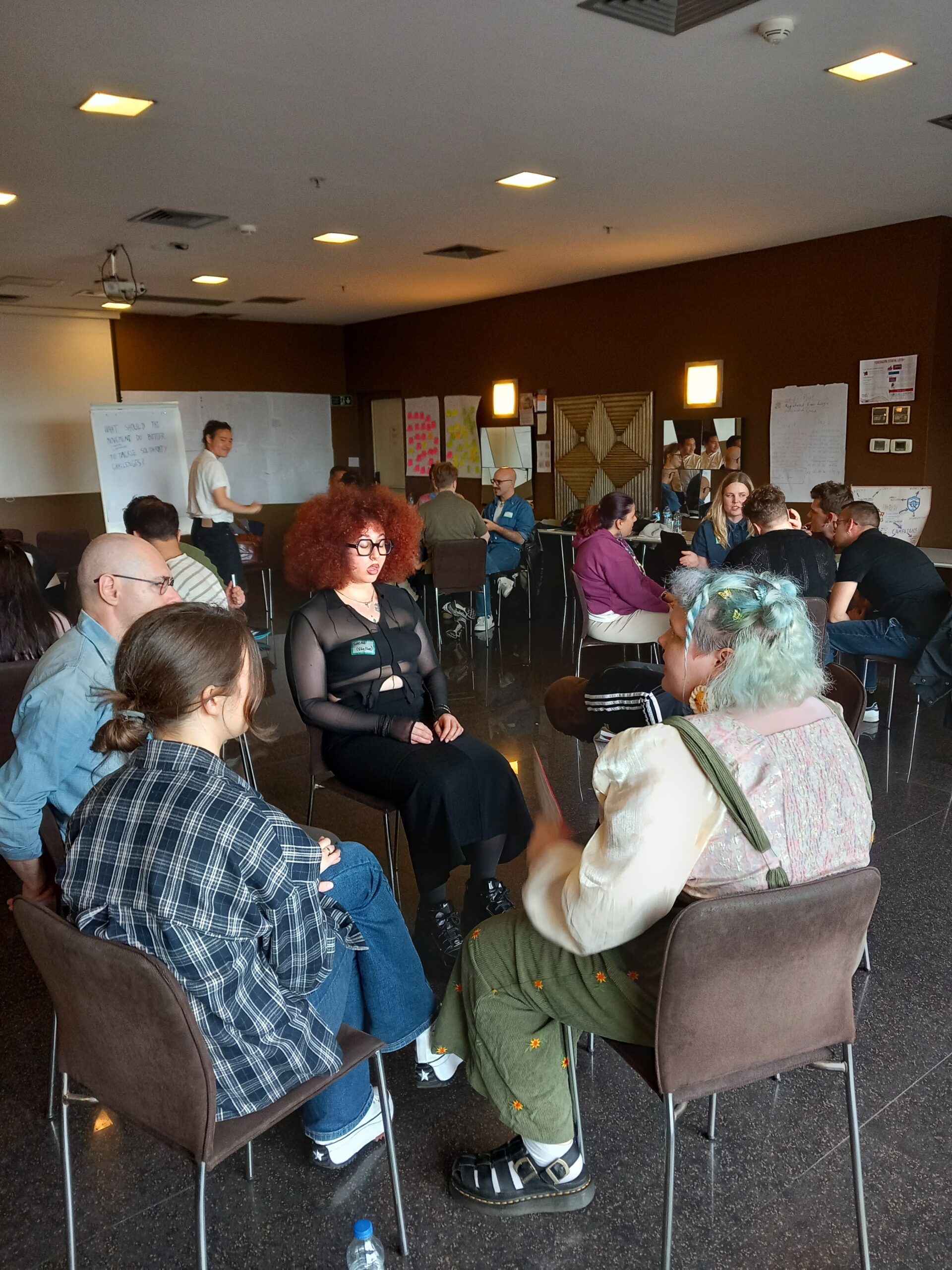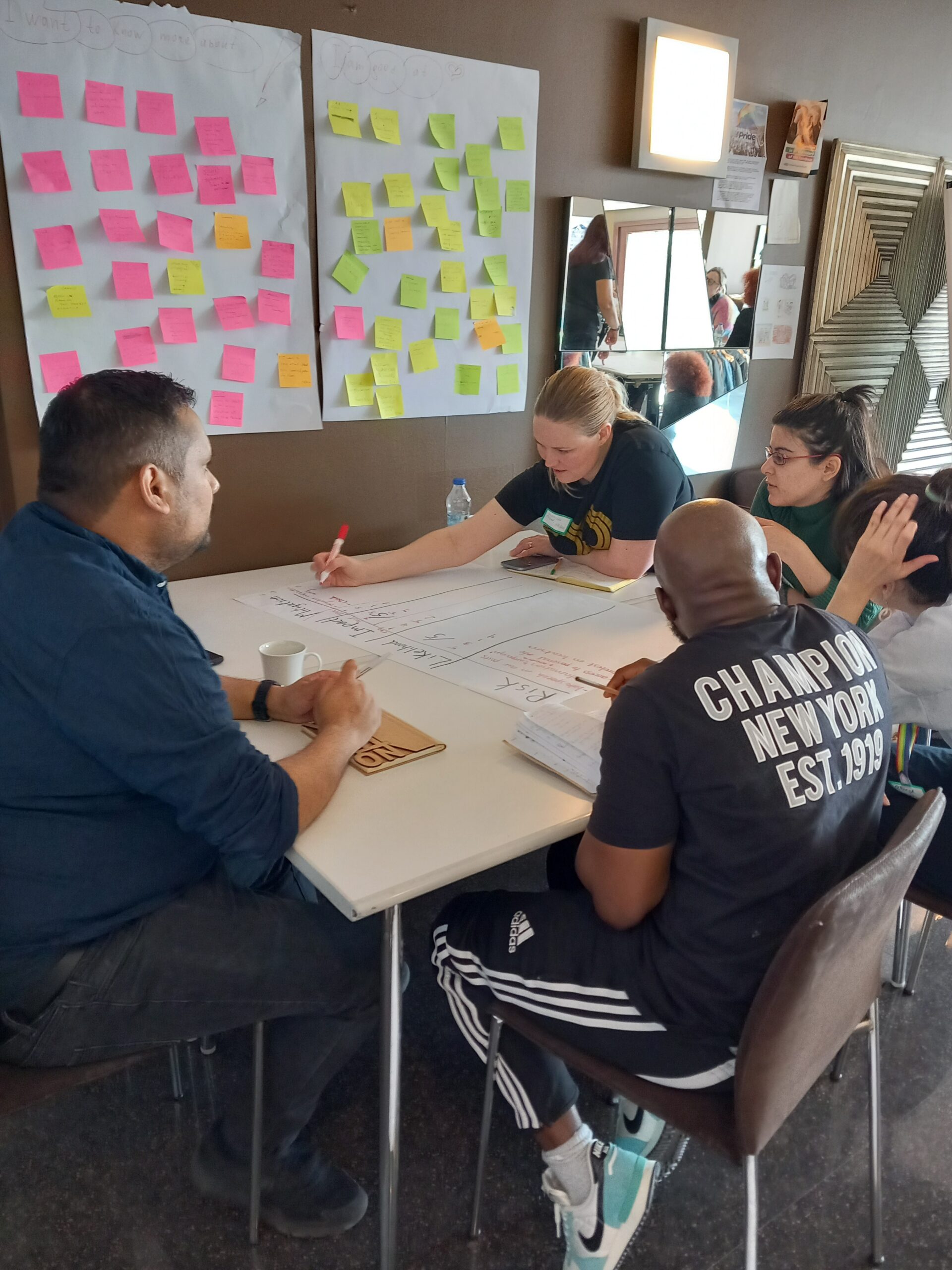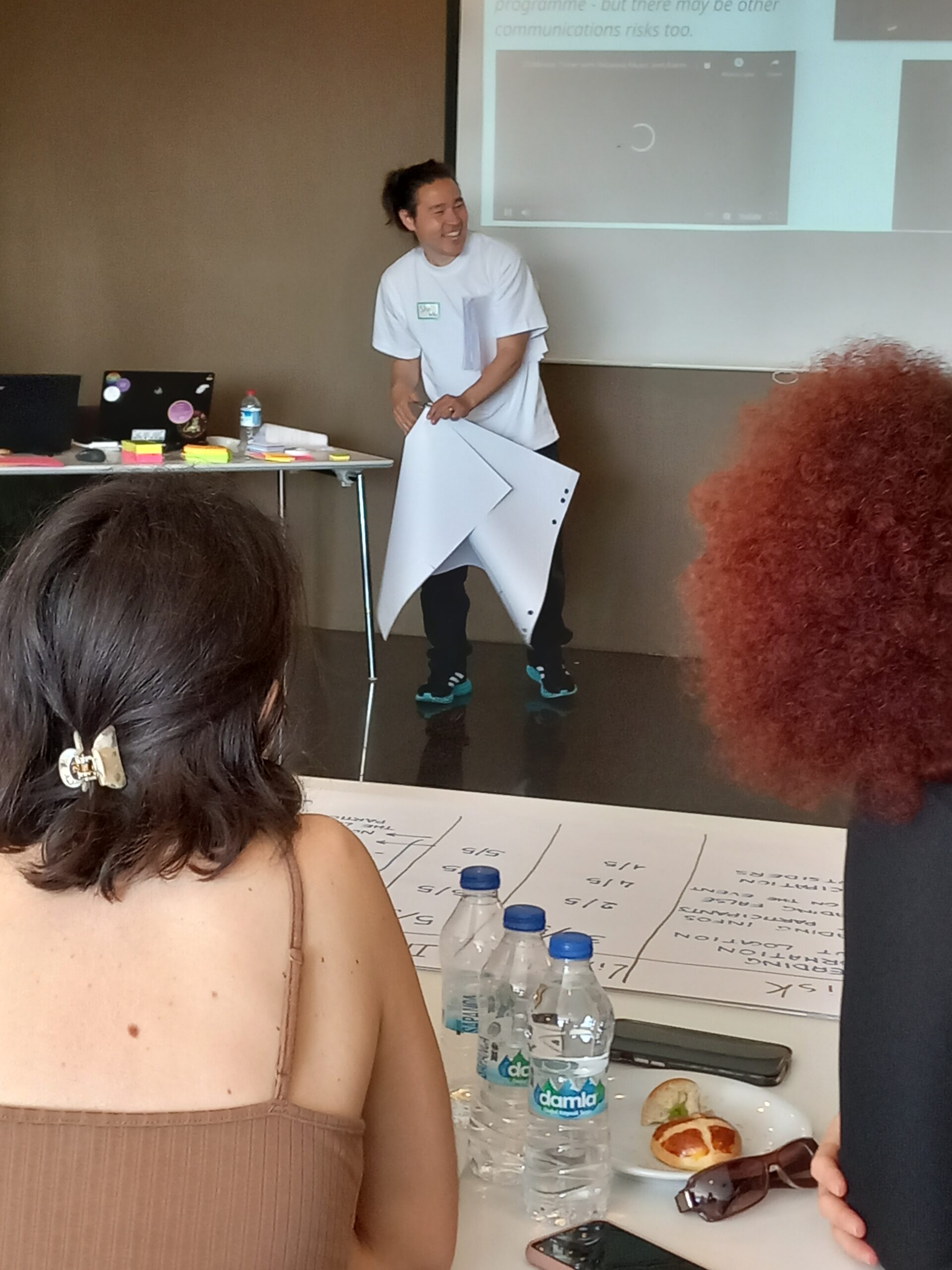Joint statement: Trans children and young people in schools deserve safety and understanding
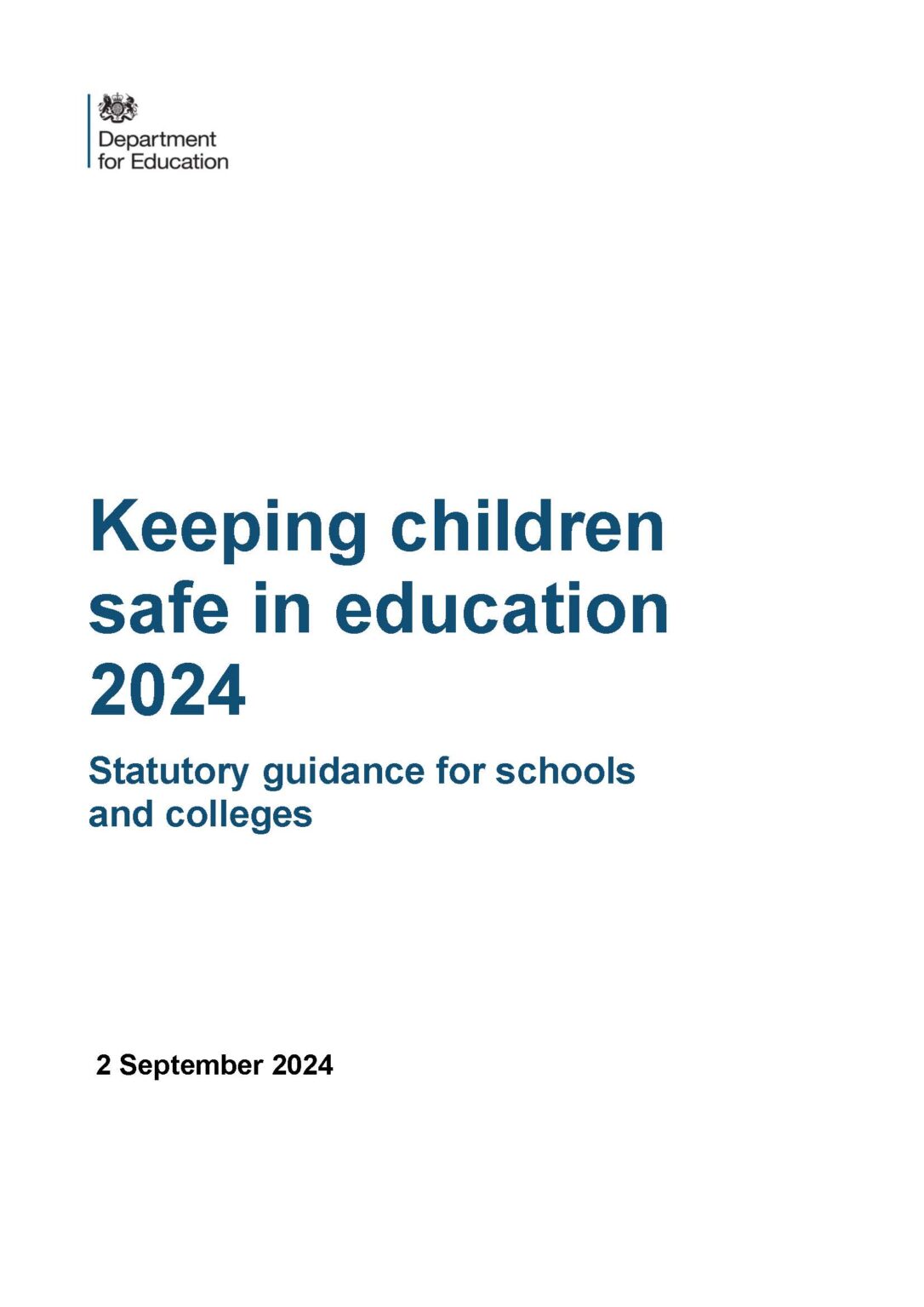
This statement was drafted by IGLYO with input from UK inclusive education experts and Members, and was endorsed by ILGA-Europe and Transgender Europe (TGEU).
We condemn the UK Statutory Guidance for Schools & Colleges and their failure to include trans and non-binary students in an affirming, supportive way.
Returning to school in September should be an exciting time for young people, catching up with friends, and new adventures ahead. Yet, trans children and young people in England continue to be targeted by exclusionary policies in education. On 2 September, the UK government published its updated legally-binding guidance for schools and colleges in England, with a section on LGBT persons that remains under review, titled “Keeping Children Safe in Education 2024”.
While we recognise the importance of providing clear guidance to schools and colleges in relation to safeguarding young people, we are concerned about the harmful and untrue narratives underlying this guidance in relation to young people’s identity. If kept in its current state, this guidance could provide a pathway to strip young trans people of their rights and agency, while perpetuating harmful stereotypes.
We are particularly concerned by the following:
- The updated guidance refers to children and young people being LGB in affirming ways but has removed parallel references for trans children and young people. We strongly condemn the government’s decision to remove trans identities from this list and its previous guidance and stress the need to reintroduce language that protects young trans people. To keep trans children safe in education, we call upon the UK government to recognise the harms of transphobia and bullying ever present in UK schools and colleges and to provide a clear framework in relation to safeguarding trans children’s well-being and identity.
- We also note with concern that the UK government continuously refuses to recognise trans identities in young people as real, conflating such terminology with ‘gender questioning’ throughout its guidance. This rejects the idea that young people can be trans. We recall that this linguistic shift was observed in other recent government guidance, including the draft schools and colleges guidance “Gender questioning children” and the “Draft Relationships Education, Relationships and Sex Education (RSE) and Health Education” statutory guidance.
- The UK government cross-references guidance that is in draft form and in consultation to reinforce its harmful messaging. There has been no response by the government to the consultation, including to concerns expressed through inputs by educators, policy experts, human rights groups, and young people themselves during the consultation.
- The “Keeping Children Safe in Education 2024” guidance uses the Cass Review as an evidentiary basis for this policy change, despite its poor and inconsistent use of evidence, pathologising approaches, and exclusion of service users and trans healthcare experts. As stated by healthcare activist and feminist researcher Dr Ruth Pearce in an article titled “What’s wrong with the Cass Review? A round-up of commentary and evidence” (2024), the Cass Review “has been extensively criticised by trans community organisations, medical practitioners, plus scholars working in fields including transgender medicine, epidemiology, neuroscience, psychology, women’s studies, feminist theory, and gender studies”.
- The “Keeping Children Safe in Education 2024” guidance recommends that families are involved in social transition in schools, despite the potential safeguarding risks of outing students to their caregivers. Research by Galop (2022), UK’s LGBT+ anti-abuse charity, noted that 2 in 5 trans or non-binary people had experienced abuse at the hands of family members, with the majority experiencing this before they turned 18 and often in relation to their gender identity. We reiterate that all young people, including trans young people, have the right to privacy, which must be respected. Trans children and young people should be supported in choosing for themselves when and how to share information about themselves with their parents or guardians. We are also concerned that the government refers to ‘exceptionally rare’ situations in which there could be a safeguarding reason to not inform parents but provides no evidence for this being exceptionally rare and no guidance for how schools decide when this risk threshold is met.
- We also stress that the guidance as it stands now recommends that schools encourage parents to seek “clinical help and guidance”, which is not only dehumanising and pathologising, it is also virtually impossible due to the UK government’s restrictions on gender-affirming care to young trans people. Parents and guardians should listen to trans children and young people and respect their identity and wishes. Not rush them off to a doctor’s office.
- We further condemn the guidance’s conflation of being trans with mental illness and autism. While some trans young people may experience mental health difficulties both as a result of transphobia and unrelated reasons, neither mental illness nor autism is intrinsic to their gender identity. We urge the government to stop scapegoating trans young people and creating further divides across communities. This is extremely dangerous and harmful to not only trans youth, but also neurodivergent and autistic youth, including those that are both trans and autistic.
On the guidance, Alex Feis-Bryce (He/him), Executive Director of our UK Member Diversity Role Models noted: “I am very concerned about the lack of clarity this update provides teachers and school leaders on their return to school and the impact it could have on trans young people. The proposed changes, that remain under review, could strip young trans people of their agency. To keep children safe in education and ensure that their right to privacy is protected, any education policy should recognise the challenges young trans people currently face in education, including bullying on the basis of their real or perceived difference, not introduce additional barriers.”
The “Keeping Children Safe in Education 2024” guidance is just another step in the deeply worrying march toward the attack against trans people in the UK. We urge our members across the Council of Europe region to take note and prepare for similar attacks in their home nations.
IGLYO, the world’s largest network for LGBTQI young people and students, and signatories of this statement ILGA-Europe and Transgender Europe (TGEU) call on the UK government and policymakers to stop fueling this moral panic against trans young people and discard dangerous changes proposed to the aforementioned pieces of guidance. Trans children are at increasing risk of isolation, alienation and violence. It’s time to get on the right side of history and protect trans children, and their human rights.
Creative ways allies supported us in Pride 2024

As Pride season 2024 comes to a close, we highlight some of the most innovative and impactful initiatives by our allies that have stepped up to support the LGBTI community
Brevo: Celebrating diversity across borders
Brevo, a CRM company, has made a significant impact with its Rainbow Alliance, an internal group formed to foster inclusivity and celebrate diversity. Throughout June, Brevo raised awareness about LGBTI topics across its global offices, culminating in a memorable event featuring Minima Gesté, the iconic French drag queen and Olympic torchbearer.
Minima Gesté hosted a lively drag bingo at the Paris office, showcasing the fun and empowering side of LGBTI culture. This event not only entertained but also educated team members about the struggles faced by LGBTI people. Brevo complemented this with Pride quizzes and decorated its offices in vibrant rainbow colours, reinforcing their message of acceptance and celebration. Furthermore, the company donated to ILGA-Europe, showing its commitment to social justice.
CMS: Ice cream for equality
The law firm CMS also got into the spirit of Pride with an innovative after-work ice creams event. Employees enjoyed delicious treats while contributing to a worthy cause—raising funds for ILGA-Europe. The firm’s commitment to diversity and inclusion was evident as they celebrated the richness of their workforce, welcoming everyone regardless of gender, age, disability, or sexual orientation. Special thanks were given to the team members who organised this delightful initiative, demonstrating how simple acts can have a profound impact.
Qonto: Amplifying impact through donation matching
Qonto, a fintech company, took a strategic approach by matching donations made by its employees. This initiative aimed to amplify the impact of their contributions to the LGBTI community. Qonto’s leadership highlighted the importance of supporting organisations like ILGA-Europe, which operates at a pan-European level. By fostering a culture of inclusivity year-round, Qonto is setting a standard for corporate responsibility in the LGBTI advocacy space.
Eurail: Lunch & learn for awareness
Eurail hosted a “Lunch & Learn” session in Utrecht, providing an opportunity for their team to educate themselves about the current LGBTI rights situation in Europe through the Rainbow Map. The company made a generous donation to ILGA-Europe, aligning with its values of connection and inclusivity. This initiative not only informed employees but also fostered a sense of community and collaboration for a greater cause.
VIA Outlets: Art for awareness
VIA Outlets celebrated Pride Month with its ‘BE PROUD. BE YOU.’ exhibitions, showcasing the work of local artists connected to the LGBTI community. These unique exhibitions, displayed across 11 outlet centres, promoted the stories and experiences of queer individuals. Guests could engage with art and learn about the history of Pride while contributing to ILGA-Europe through donations. The commitment of VIA Outlets to create inclusive spaces for everyone was powerfully articulated by its CEO, Otto Ambagtsheer.
Get Involved!
These initiatives illustrate just a fraction of the many ways organisations, staff teams, and community groups can support ILGA-Europe and the broader LGBTI movement. Every contribution, no matter how small, helps advance equality and acceptance for all.
If you’re inspired by these stories and want to make a difference, we encourage you to explore how you can get involved with ILGA-Europe whether with an initiative with your work team, a community event or a charity livestream. Together, we can create a more inclusive world for the LGBTI community.
How did Finland and Greece end up in the same place on the Rainbow Map?

In 2024, Greece and Finland have found themselves sharing the same spot—sixth place—on ILGA-Europe’s Rainbow Map, and that tells us a lot about the diverse ways in which LGBTI rights are changing across Europe.
In an unusual turn of events, Greece and Finland have both secured sixth place on the 2024 ILGA-Europe Rainbow Map. While their scores are identical, the details behind their rankings reveal key differences in their legislative approaches.
What changed from last year?
Finland has retained its sixth-place position from last year, reflecting steady progress in certain areas. A significant development was the lifting of blood donation restrictions for men who have sex with men (MSM) in December 2023. Over 1,700 people have applied for LGR based on self-determination under the new legislation that entered into force in April 2023. However, Finland still lacks a comprehensive LGBTI action plan following the expiration of the Government Action Plan for Gender Equality 2020–2023.
Greece has seen a significant rise from 13th to sixth place, driven by substantial legislative reforms. The introduction of marriage equality, joint adoption, and second parent adoption for same-sex couples marked a major advance. This law also extended non-discrimination principles across various sectors, providing a more comprehensive legal protection for LGBTI people. Despite these gains, Greece faces ongoing issues. Public events in 2023 were reportedly not adequately protected by public authorities, and there has been concern over rising hate speech and hate crimes.
Similarities and differences
Despite their shared score of 70.78% on the Rainbow Map, the legislative landscapes of Greece and Finland are marked by both convergence and divergence. Both countries excel in areas such as employment, education, and health protections for sexual orientation, gender identity, and sex characteristics. They also have comprehensive hate crime and hate speech laws, and have ensured the protection of LGBTI civil society.
However, differences in their legal frameworks reveal contrasting approaches to LGBTI rights.
- Finland’s constitution explicitly includes protections for sexual orientation and sex characteristics, a provision that’s absent in Greece.
- Conversely, Greece has enacted bans on conversion practices for both sexual orientation and gender identity, which Finland has yet to adopt.
- Greece also bans unnecessary medical interventions on intersex children.
- Greece has also developed equality action plans covering sexual orientation, gender identity, and sex characteristics, which Finland now lacks.
- Finland allows trans people to access legal gender recognition based on self-determination, while in Greece trans activists are still fighting for a fair, transparent legal framework for legal gender recognition based on a process of self-determination and free from abusive requirements.
- Finally, Finland allows medically assisted insemination for couples and recognises trans parenthood, while Greece does not.
Although they are joint sixth place on the Rainbow Map, both countries have long way to go to achieve full equality and human rights for LGBTI people. This is why, with the consultation of LGBTI organisations, we prepared a list of recommendations to improve the legal and policy situation of LGBTI people in both countries.
For Finland, we recommend removing the age restriction in the existing legal gender recognition framework, banning conversion practices, and prohibiting medical intervention on intersex minors. For Greece, our recommendations include introducing a legal framework for legal gender recognition based on a process of self-determination, recognising trans parenthood, and strengthening police protection for LGBTI public events.
The shared ranking of Greece and Finland on the 2024 Rainbow Map is a fascinating case study in the diverse approaches to LGBTI rights within Europe. The Rainbow Map not only tracks these advancements but also serves as a vital tool for identifying areas in need of improvement. For those interested in delving deeper, there is a feature to compare countries, explore individual categories, download datasets and graphics, and gain insights into the current state of LGBTI rights across Europe.
Digital advertising for LGBTI activists: What we learned at the latest ILGA-Europe Skills Boost

At ILGA-Europe, one of our goals is to equip activists with new skills and knowledge to help them amplify their voices and make a meaningful impact in their communities. One of the ways we do this is through our regular online Skills Boosts. Our latest one was all about maximising the potential of digital advertising.
We are committed to empowering LGBTI activists across Europe and Central Asia through our Skills Boosts. These online sessions cover a range of critical topics such as media relations, fundraising campaigns, and communication strategies. By equipping activists with the necessary skills and knowledge, we help them amplify their voices and make a meaningful impact in their communities.
In our last Skills Boost we dove into the world of digital advertising, with a special focus on helping LGBTI organisations maximise their reach and effectiveness online. Jean O’Brien, digital consultant and founder of Digital Charity Lab, was with us to share her expertise on how LGBTI organisations can get started with digital ads. Jean is an expert in using digital channels to build support for causes, and she shared her top tips for understanding, using and testing digital ads.
1. You almost definitely need a paid ad strategy
The reach of organic content (i.e. content that’s posted for free, with no ad budget) on social media decreases every year. These channels were all built in order to sell ads, and it’s very difficult to get a good return with free activity only. You may find that some organic posts do well but then the next ones will perform badly. There’s no consistency, and you really need to be able to count on a channel to deliver, if you’re putting time into it. A majority of non-profits need some kind of budget for paid digital ads.
2. You just need enough budget to run a test campaign
If you don’t currently have a budget for ads, consider halting other activities to free up funds. For example, if you are boosting posts, stop that and allocate the budget to proper ads instead.
Aim for a budget of up to €1,000 to run a lead ad campaign (see more in point 9). Once you measure the performance of this campaign, you can make the case for more budget.
If there is genuinely no budget and no chance of getting one, then review whether you can continue with certain channels at all. If you’re putting a lot of time into organic posting on Instagram which brings in no return, that’s a waste of resources and you can consider abandoning that channel entirely.
3. Meta Ads are the best place to start
There are many options for paid digital, including Google Ads, TikTok, Meta, LinkedIn, Twitter / X, etc. These platforms all have different strengths. When you’re starting off with a small ad budget, I recommend focusing on Meta Ads, as they have the most powerful ad algorithm. The Meta platform includes ads on Facebook, Instagram and WhatsApp, so you can reach very different audiences within it.
It’s also really worth applying for the Google Grant and setting up Google Grant Ads, if you have enough resources to do two ad channels. Google donates up to $10k in search ads each month, and it’s a great channel for reaching warm audiences. Find out more in Digital Charity Lab’s online course in Google Grant Ads.
4. Learn how to run your own Meta campaigns
If you always hire agencies to run your Meta campaigns, it makes each campaign more expensive. Learning how to run campaigns and do split-testing yourself, will get you much better value with your Meta Ads. Plus it’s great professional development for your team.
5. Understand Meta Ad objectives
Meta Ads allow you to choose different ‘objectives’ – you’ll define what you want to achieve from your campaign. It’s very specific and literal so be careful: if you choose ‘video views’, Meta will just find people who watch a lot of videos. If you want people to watch a video and then take an action, you’re better off choosing a conversion objective instead. Meta has absolutely immense amounts of data on its users, and it knows which people are most likely to take an action. Choose your campaign objectives with care: they’re really important, and easy to get wrong. If you don’t tell Meta the right strategy, it won’t find the right people.
6. Every campaign needs 50 results in order to really perform
This is how Meta Ads platform works:
- You set an objective for your campaign (such as leads; or conversions like purchases or donations)
- Meta tries to find the first 50 results. If it’s a lead campaign, it needs 50 leads. If it’s a donations campaign, it needs 50 donations.
- Once it has the first 50, it then uses those results to build a statistical model, to find more people like the first 50. This is when the campaign starts ‘optimising’ – i.e., finding the best audiences for the ads and the best cost per result.
- If Meta can’t find the first 50 results, it shows ‘learning limited’ and the campaign will not perform as well.
When you’re running a Meta Ad campaign, you need to give it enough budget and time to find the first 50 results. If you don’t, the campaign won’t perform well. This obviously makes things more complicated when it comes to objectives like donations: it can cost a lot of money to get 50 donations. That’s why I recommend starting with a lead ad campaign (see more in point 9).
7. Go bigger than you may be used to – bigger budgets, longer run times, broad audience
Non-profits often make the mistake of splitting their Meta Ads budget across lots of very small campaigns – €100 here, €75 there, 2 days here, a week there. A much better way to spend your budget is to consolidate it into one lead campaign (see more in point 9). It means you’ll be able to get the first 50 results, and do proper creative split testing to get a really good cost per result. Once you have your best creative, you can run the ads for a long time on a small daily budget, constantly growing your mailing list and getting really good value out of the campaign.
Try broad audience targeting when you’re doing your lead campaign. The Meta algorithm is really good at finding the right people.
8. Creative split testing is crucial
The more creative variations you use, the more chances you give Meta to find the relevant people. Meta makes split testing really easy, with its ‘dynamic creative’ ad format.
The way many charities work is: they spend a lot of time developing the look and feel of a campaign, create a few core designs based on the creative concept, and then just use those designs in their Meta ads. But if you start by testing more images, and more that are significantly different, you’ll be pleasantly surprised with the results.
Test five headlines, five primary texts and at least five images in each campaign. Meta will give you the exact breakdown of which are achieving the most volume and the best cost. Once you know the best performers, you can remove the ones that aren’t working and continue the campaign with the best creative.
9. A lead campaign is a great place to start
Lead ads are a very effective ad format on Meta, that allow you to capture contact details directly on Facebook and Instagram. Meta’s lead forms are very user-friendly and quick for people to fill in.
With a lead campaign, you can capture people’s contact information and move them to a platform where it’s easier and cheaper to contact them – such as email or SMS. Once you have contact details for a supporter, you have multiple opportunities to talk to them. You can develop a long term relationship, and get long term value from the campaign.
Lead campaigns will work with small budgets – you can run an effective lead campaign for around €1,000.
Start learning and testing!
There is definitely a great opportunity for LGBTI organisations to use Meta Ads to build support. You just need to ensure that the budget is adequate, and that you’re supported to learn the platform and fully understand good strategy before you’re expected to bring in results.
Sources for learning more about Meta Ads
- Join ILGA-Europe’s private communications support group to get access to the recording, slidedeck, and 46-page guide from the Skills Boost on Digital Ads which Jean ran for LGBTI activists in June 2024.
- Jon Loomer – Meta Ads expert who shares extremely useful information on his website
- Digital Charity Lab – free and affordable digital skill-building for non-profits
Don’t miss our next Skill Boost! Join our Facebook group Communications support group for LGBTI activists where we regularly post upcoming opportunities to boost your communication skills.
Who was at the ILGA-Europe Equality Fundraiser?
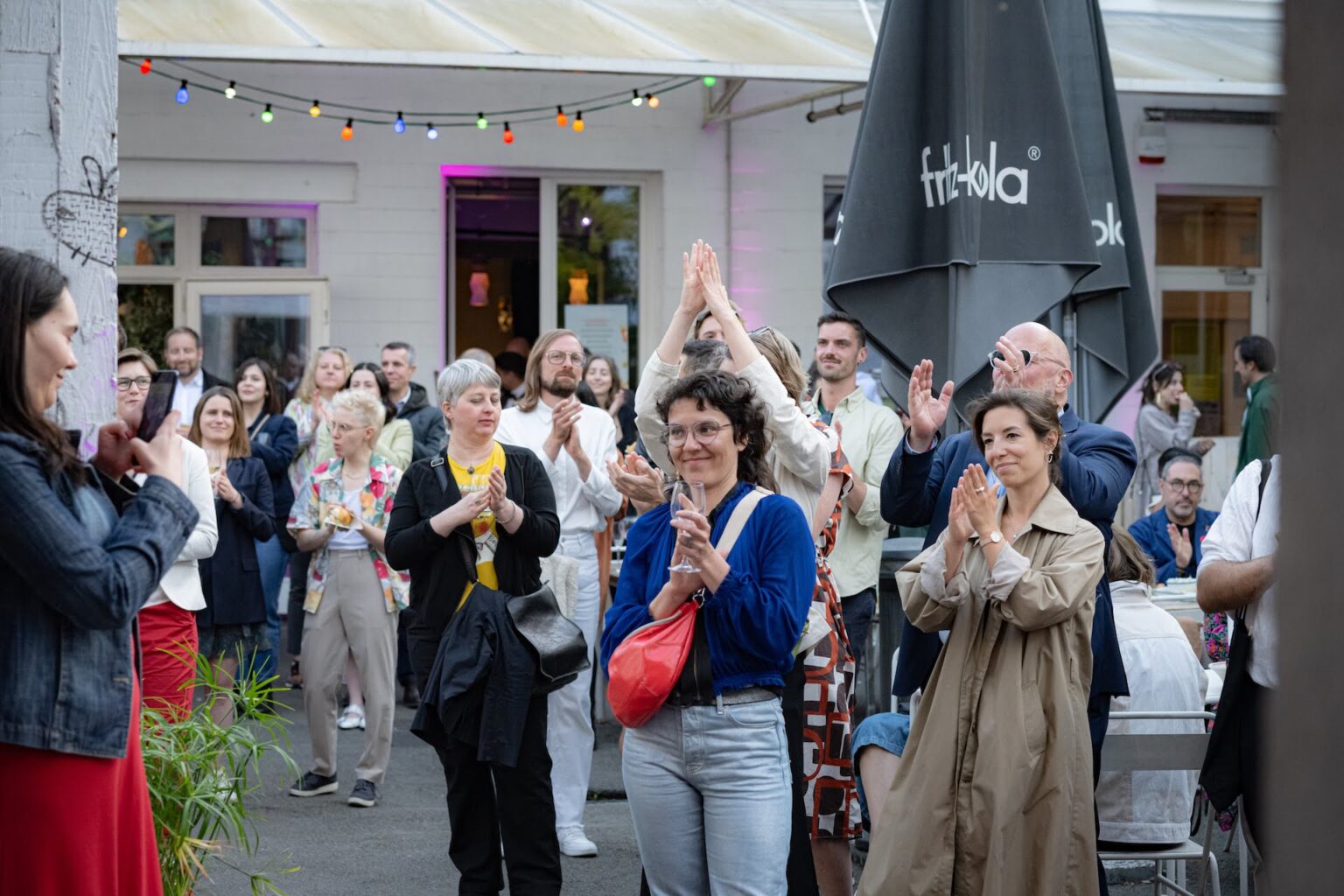
A night of celebration and solidarity brought together a diverse array of supporters committed to advancing LGBTI human rights
On 4 July 2024, Brussels was abuzz with excitement as ILGA-Europe hosted its annual Equality Fundraiser. One of the best parties of the city’s summer season, the event featured an array of special cocktails, sumptuous food, live performance, and dancing with one of the most popular DJ’s on the Brussels queer scene. This gathering wasn’t just a social affair; it was a crucial fundraiser in support of ILGA-Europe’s vital work towards LGBTI freedom and equality. As we celebrated, we were reminded that achieving equality requires collective effort so that everyone can live freely and safely. At the heart of this event were almost 200 diverse supporters and allies committed to the cause, showcasing the strength and unity within our community.
Pro-bono legal support: Cleary
One of the standout supporters of the evening was Veerle Van Hoorebeeck from Cleary, a law firm that has recently partnered with ILGA-Europe to provide pro-bono legal assistance. Veerle expressed Cleary’s desire to make a tangible difference to LGBTI people’s lives through supporting our work, saying: “We love working with ILGA-Europe. We started recently, providing pro-bono lawyers, and we’ll look for more future pro-bono projects with which we can support the work. We feel we can really make a difference that way.”
This partnership highlights the critical role of legal support in advancing LGBTI rights and the impact of professional services in driving social change.
Institutional partnership: DG JUST
From the EU institutions, Susanne Knoefel from the Department for Justice at the European Commission emphasised the importance of collaboration between member states and civil society. “ILGA-Europe is one of our really trusted interlocutors in working together on LGBTI rights, she said. “And it’s all about working hand in hand. So, we work hand-in-hand with member states and with civil society, in particular with ILGA-Europe. I’m here tonight to support, but also to have fun!”
Susanne was one of many guests attending from across European Commission departments, demonstrating support and commitment to working together with LGBTI civil society to strengthen LGBTI rights across Europe.
Corporate ally: Google
Corporate support also played a significant role in the success of the fundraiser. As Steve Loh from Google, long-time headline sponsor of the event, said: “I represent the Pride Chapter at Google, so my idea is to look at how I can help ILGA-Europe in other aspects. We can go beyond just one fundraising event, create a bigger reach, provide a space, and learn from each other. That’s what I’m looking forward to.”
Google’s ongoing support is a great example of how companies across sectors can extend their influence and resources to support the LGBTI equality movement.
Civil society alliances: Mental Health Europe
Margi Marchetti from Mental Health Europe highlighted the intersection of mental health and queerness, addressing the ongoing challenges faced by LGBTI people. “We are going through discrimination, microaggressions, and harassment every day,” they explained. “The way we learn how to cope with it and the way it affects our self-esteem and even our ability to dream about our lives, that’s a big chunk of our identities. It has an impact on our mental health.”
Mental Health Europe was one of several civil society networks attending the event, in a wonderful demonstration of solidarity and building alliances around intersecting issues.
Trade Union solidarity: Rainbow Network of Dutch Trade Union FNV
From the trade union sector, Jolanda Van Gool and Patrick Van der Pas represented the Rainbow Network of the Dutch Trade Union FNV. They stressed the significance of solidarity in their work. “We think solidarity is very important. So that’s why we came to Brussels to show our support for equality and LGBTI rights. We have a rainbow checklist for workers’ rights, that’s where we have the most impact, on the collective bargaining agreements,” said Jolanda.
Patrick added: “We think it’s important to collaborate with other organisations elsewhere, but also with trade unions, just practicing solidarity. We need to stand for the human rights of the workers in the workspace. And put that first instead of business.”
This commitment to LGBTI rights within the workplace highlights the critical role of trade unions in advocating for inclusive and equitable labour practices.
Political representation: MEP Carolina Morace
Newly elected MEP and former footballer from Italy, Carolina Morace, shared her personal connection to the cause. “I am married to a woman for almost ten years and these are my people. I can understand what we went through in our lives. I used to be part of a sports squad and I know how important it is to have a team behind you. I want to be a part of a team here, to represent the rights of everybody. In Europe, some countries are in better situations, while others are in bad situations. In Italy we are in a very bad situation right now. The government doesn’t represent everybody and I think that I can be a voice of people who don’t have a voice in Italy.”
Carolina is one of the 164 elected MEPs who signed ILGA-Europe’s Come Out 4 Europe pledge to protect and advance LGBTI human rights in the new parliament. We look forward to working closely with them all to ensure that LGBTI rights remain high on the political agenda.
A resounding success
The ILGA-Europe Equality Fundraiser was a resounding success, not just in terms of funds raised, but in the solidarity and commitment shown towards our vital work for LGBTI safety, equality and freedom by our diverse supporters. From law firms and EU institutions to private sector companies, civil society groups working on a range of issues, trade unions, and policy-makers, the evening was a testament to the collective effort required to advance LGBTI human rights.
Each supporter, in their unique way, contributes to our shared goal of achieving equality, ensuring that every person can live in freedom and safety. Together, we are stronger, and together, we will continue to fight for a better, more inclusive world. If you weren’t able to come to the fundraiser, you can still support our work by making a donation – and stay tuned for announcements about next year’s event!
Joint statement: Paving the way for an equality-centred policy cycle
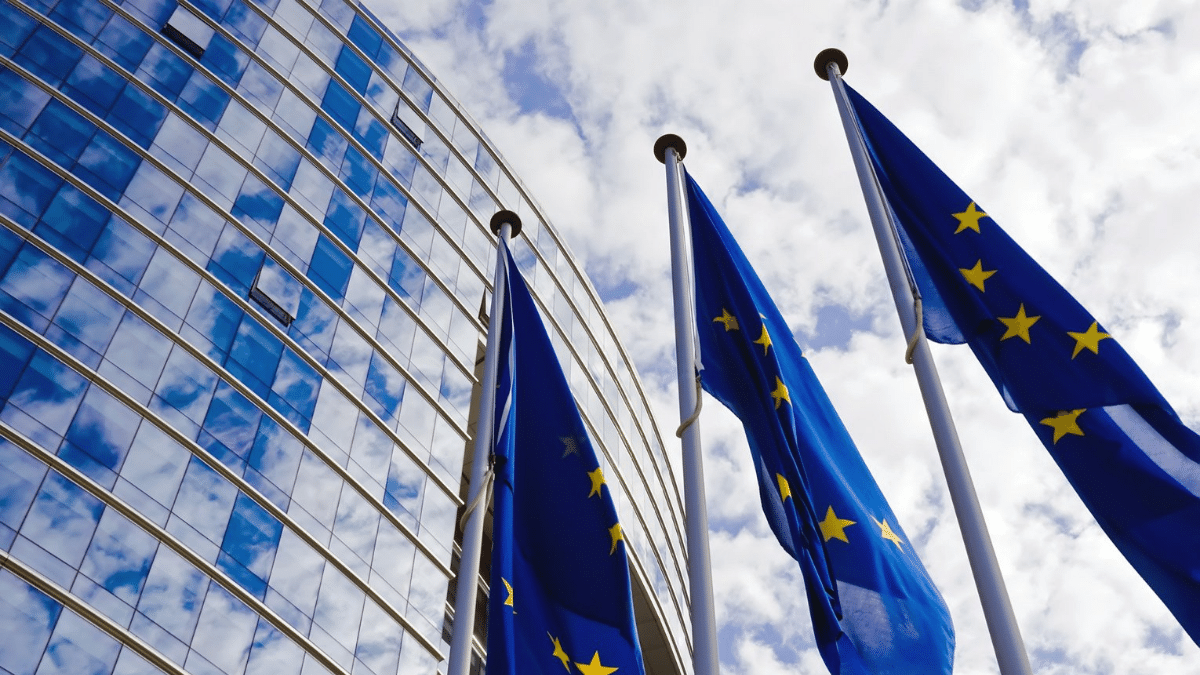
Along with 140 civil society organisations across the EU, we are calling on EU leaders to include equality & non-discrimination as central priorities in the EU work programme for the next five years.
The European Union was founded on the principles of equality and non-discrimination. Yet too many people continue to face discrimination and inequality across the Union, including intersectional and multiple forms of discrimination in all aspects of their lives.[1] In the current climate, it is now imperative that the EU institutions strengthen their resolve to take meaningful and urgent action to address this reality.
As European Union leaders decide on their priorities for the 2024-2029 cycle, we call on them to ensure that equality and non-discrimination are included as central priorities in the EU work programme for the next five years. Only by centring equality and protection from discrimination in this way can the EU truly respond to the key concerns of people living in the Union.
The equality and non-discrimination agenda was afforded increased visibility and action during the last five years as a result of the ambitious “Union of Equality” agenda and the appointment of the first Commissioner for Equality. This led to unprecedented progress in efforts to advance equality and non-discrimination across EU policy making. Progress included the adoption of important initiatives such as the Directive on violence against women, inaugural Gender Equality and LGBTIQ Equality Strategies, an Anti-Racism Action Plan, a Green Paper on Ageing, an Action Plan on Integration and Inclusion, a Strategy to strengthen the application of the Charter of Fundamental Rights in the EU, as well as the renewal of the Strategy for the Rights of Persons with Disabilities and the EU Roma strategic framework.
At this critical juncture, it is vital that the EU continue to prioritize efforts to guarantee the founding values of equality and non-discrimination, to advance the entire package which comprises the Union of Equality, and to ensure an intersectional approach to this agenda. Failure to do so would seriously jeopardise progress in this area and mark a very dangerous step backward.
To this end we call on EU leadership to take the following steps:
- Appoint a Commissioner for Equality and Fundamental Rights, ensuring the mandate has the power to renew and deepen the Union of Equality agenda and nominating a candidate with a demonstrated commitment to equality;
- Strengthen the Union of Equality agenda by introducing new strategies to address grounds not already covered, mainstreaming all strategies across policy areas and renewing and building-out existing equality strategies, such as the Gender Equality Strategy, LGBTIQ Equality Strategy, the EU Anti-Racism Action Plan, the Action Plan on Integration and Inclusion, the EU Strategy on the rights of persons with disabilities and the Roma strategic framework;
- Ensure the next EU budget includes robust funding streams for civil society organisations working on equality and non-discrimination;
- Ensure equality and non-discrimination objectives are also core components of EU priorities in the sphere of international cooperation, external and humanitarian action;
- Maintain the current status of the Parliament’s Committee on Women’s Rights and Gender Equality and refrain from weakening its mandate;
- Establish a Council configuration dedicated to equality in the EU and ensure concrete commitments towards implementation of equality strategies by member states;
- Establish a new Directorate-General for Equality and Fundamental Rights thereby strengthening the Commission’s ability to design and monitor equality and non-discrimination laws and policies;
- Renew and upgrade the mandates of the Commission Coordinators working on equality, ensuring a focus on intersectionality during this term;
- Entrust the Commission Task Force on Equality with a strong mandate and ensure it works transparently and in close consultation and cooperation with civil society organizations and networks.
As 143 civil society organisations with significant expertise on equality, and as representatives of groups at increased risk of discrimination across the EU, we issue this call as a testament to our solidarity with each other, and urge EU leaders to ensure that the people most affected by EU policies and legislation on equality and non-discrimination are always involved in their development and implementation.
- A Scuola Per Conoscerci, Italy
- ACCEPT LGBTI Cyprus
- ACCEPT Romania
- ACT Alliance EU
- AESCO (América, España, Solidaridad y Cooperación)
- Agapanto, Italy
- AGE Platform Europe
- Agedo Nazionale, Italy
- Aidos (Italian Association for Women in Development)
- ALFI – Associazione Lesbica Femminista Italiana, Italy
- AlfiLune, Italy
- Amnesty International
- Amref Health Africa – Italy
- Anemos Dimiourgias – Greece
- ANTAMA (Greece)
- Anti-Discrimination Centre Memorial Brussels
- APRe! Associação de Aposentados, Pensionistas e Reformados (Portugal)
- ARCIGAY LGBTQIA+ Association, Italy
- ASKV Refugee Support
- Asociación de Investigación y Especialización sobre Temas Iberoamericanos – AIETI (Spain)
- Asociación Por Ti Mujer
- Association Bagdam Espace Lesbian – France
- Association Legebitra, Slovenia
- Association Liberas – Italy
- Association for Monitoring Equal Rights / Eşit Haklar İçin İzleme Derneği (Turkey)
- ASTRA Network
- ATDAL Over 40 (Italy)
- Austrian Disability Council
- Austrian Family Planning Association (OGF)
- Autism-Europe
- Avaaz
- Avocats Sans Frontières
- Belgian Disability Forum (BDF)
- Brain Injured and families European Federation (BIF)
- çavaria, Belgium
- Center for Gender Rights and Equality DIOTIMA
- Center for Reproductive Rights
- Certi Diritti, Italy
- Circolo di Cultura Omosessuale ” Mario Mieli”, Italy
- Civil Rights Defenders
- COC Nederland
- Cologne Counselling – Germany
- Confederación Sindical de Comisiones Obreras (CCOO)
- Dachverband Lesben und Alter e.V. – Germany
- Danish Family Planning Association
- Deutscher Behindertenrat (DBR)
- Disabled Peoples’ International European Region (DPI Europe)
- Doctors of the World Spain
- Društvo Parada ponosa – Slovenia
- EDGE, Italy
- EMAIZE Sexologia Zentroa – Centro Sexológico
- End FGM EU
- Epen, El Parto es Nuestro
- EuroCentralAsian Lesbian* Community (EL*C)
- European Blind Union (EBU)
- European Disability Forum
- European Dyslexia Association
- European Federation of Hard of Hearing People
- European Network Against Racism (ENAR)
- European Roma Grassroots Organisations Network (ERGO Network)
- European Sex Workers’ Rights Alliance (ESWA)
- European Women’s Lobby
- Famiglie Arcobaleno APS, Italy
- Federación de Mujeres Progresistas
- Fédération Laïque de Centres de Planning Familial (FLCPF)
- Foundation for Women and Family Planning (FEDERA)
- French Family Planning / le Planning Familial
- Fundación Aspacia
- GAMS Belgium (Groupe pour l’Abolition des Mutilations Sexuelles féminines)
- Gaynet – Formazione e Comunicazione sui temi Lgbti, Italy
- GenderLens, Italy
- General Commission for Justice and Peace of Spain
- GLAS Foundation, Bulgaria
- Haurralde Fundazioa
- HelpAge International
- HelpAge International Spain
- Human Rights Watch
- IGLYO
- ILGA-Europe
- Iniciatíva Inakosť, Slovakia
- International Commission of Jurists
- International Dalit Solidarity Network (IDSN)
- International Disability and Development Consortium (IDDC)
- International Federation for Human Rights (FIDH)
- International Federation of Persons with Physical Disabilities (FIMITIC)
- International Institute on Race, Equality and Human Rights
- International Planned Parenthood Federation European Network (IPPF EN)
- IntersexEsiste, Italy
- Irish Family Planning Association
- Jovesólides
- Kif Kif vzw
- KISA
- Kvinna till Kvinna Foundation
- La Coordinadora de Organizaciones para el Desarrollo (Spain)
- La Strada International
- Labrisz Lesbian Association – Hungary
- LesbenRing e.V. – Germany
- Lesbian Magazine and Program Organizing Association – Hungary
- Lesbian Organisation Rijeka – LORI – Croatia
- LesWorking – Spain
- LGBT Ireland
- LGBT komiteen – The LGBT Committee, Denmark
- Light for the World
- LSVD, the Lesbian and Gay Federation, Germany
- Malta Federation of Organisations Persons with Disability (MFOPD)
- Malta LGBTIQ Rights Movement (MGRM)
- medicusmundi
- Mujeres Jóvenes de la Región de Murcia: 8 de marzo (MUJOMUR)
- Mujeres Supervivientes de Sevilla
- National LGBTI Rights Organization LGL – Lithuania
- NET.Collect – Germany
- Nőkért Egyesület / Association for Women, Hungary
- Nothern Ireland Council for Racial Equality (NICRE)
- OII Europe
- Older Women’s Network
- PA.SY.D.Y. Pensioners Union (Cyprus)
- Platform for International Cooperation on Undocumented Migrants (PICUM)
- Polish Women’s Strike
- Possibile LGBTI+, Italy
- PRISME – Fédération wallonne LGBTQIA+, Belgium
- pro familia Bundesverband
- Quaker Council for European Affairs
- Queer Base – Welcome & Support for LGBTIQ Refugees – Austria
- Queer Sisterhood Cluj – Romania
- Quore, Italy
- Rainbow Families Croatia
- Red de Mujeres Latinoamericanas y del Caribe – España
- Rete Genitori Rainbow, Italy
- RFSL, Sweden
- Rutgers
- Save the Children
- SB Overseas
- Sdružení pro integraci a migraci (SIMI) / Association for Integration and Migration
- SEDRA-Federación Planificación Familiar
- Sensoa
- Society for Education on Contraception and Sexuality – SECS
- SolidarityNow
- Stichting LOS, Netherlands
- Terre des Femmes
- TGEU – Transgender Europe
- Toutes des Femmes -France
- Turun Valkonauha ry, Finland
- Women Against Violence Europe – WAVE Network
- Zavod Moja mavrica – Slovenia
- Zavod Transfeministična Iniciativa TransAkcija – Slovenia
[1] Throughout the text, “equality and non-discrimination” is to be understood as encompassing equality and non-discrimination in the enjoyment of the full range of human rights, including all civil, political, economic, social and cultural rights.
What European countries might soon start recognising non-binary people?
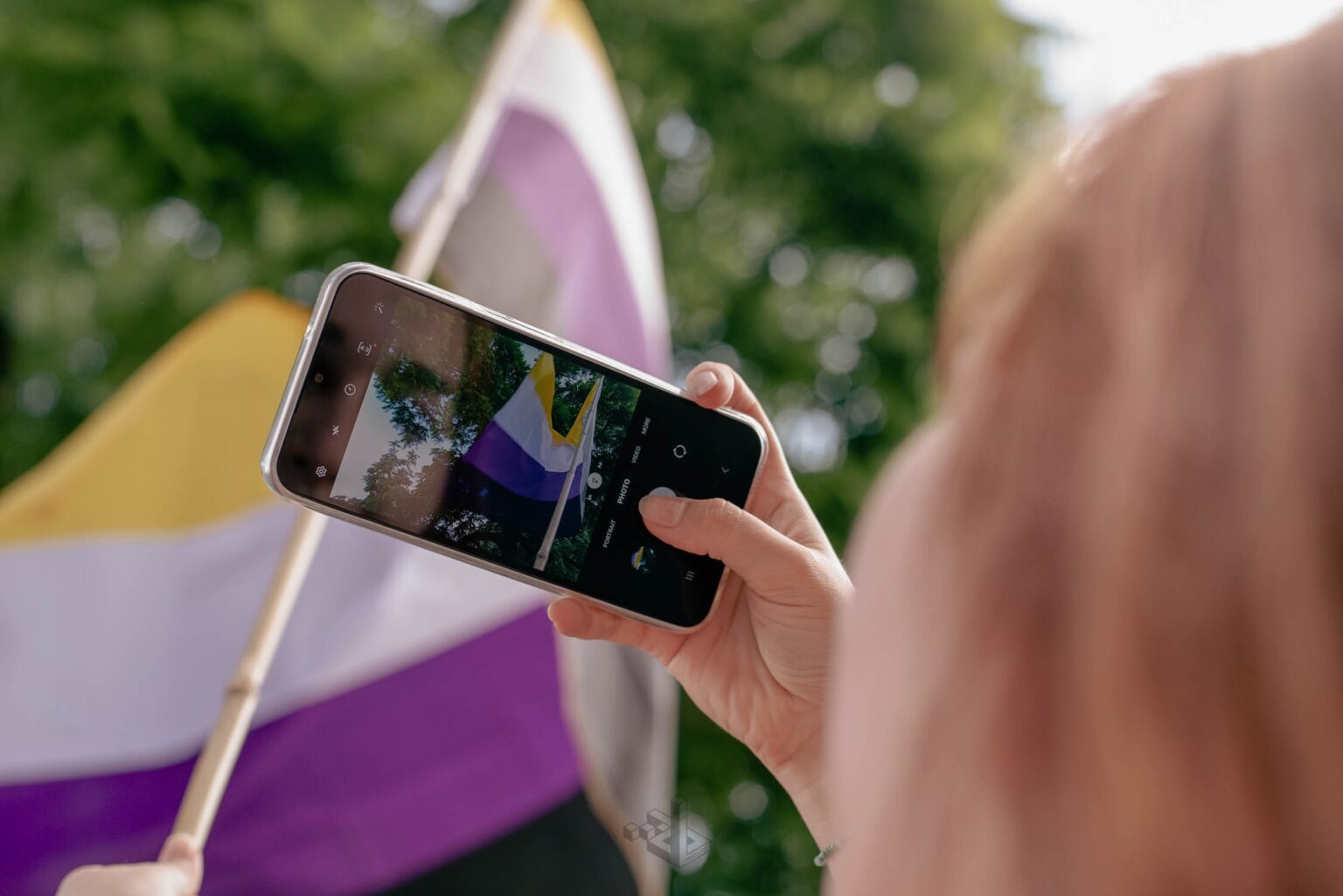
Interested in the current state of non-binary rights in Europe? This concise guide covers the most important updates and developments you should be aware of
Current situation
As of 2024, only a few European countries officially recognise non-binary gender markers. Iceland and Germany lead the way, allowing non-binary people to have their identities legally acknowledged. Denmark and Malta partially acknowledge non-binary identities, though issues remain, particularly in areas like the healthcare sector. You can read more about it in one of our previous blogs. However, progress is slow, and many countries still lack comprehensive legal frameworks for non-binary recognition.
Which countries are next?
France and the SNCF case: potential impact across the EU
Last Thursday (July 11, 2024) the Advocate General of the Court of Justice of the European Union (CJEU) gave his opinion that France’s national railway company SNCF should stop forcing passengers to choose between the civil titles “Mr” or “Ms” when purchasing train tickets. This landmark case, brought by Association Mousse, could set a precedent similar to the Deutsche Bahn case in Germany across the European Union.
In his opinion, which was published earlier this week, the Advocate General of the CJEU said that it is not “necessary” and that it is therefore unlawful for the SNCF to collect individuals’ civil titles. The Advocate General also agreed with Association Mousse that processing data on civil titles creates a risk of discrimination on the grounds of gender identity for trans and non-binary people notably as other States legally recognise non-binary identities.
Should the CJEU’s judgement align with the opinion of the Advocate General, all organisations collecting gender markers would be forced to stop doing so when it is not necessary for the service provided. The outcome has the potential to influence broader European standards for non-binary recognition, emphasising the role of strategic litigation in advancing rights.
Belgium’s legal hurdles
Belgium’s journey towards non-binary recognition has faced significant setbacks. In 2019, the Belgian Constitutional Court declared the existing laws discriminatory towards non-binary people. The government proposed removing gender markers from ID cards entirely, but this reform has stalled due to political and technical challenges. Despite these obstacles, there are plans to eventually implement these changes.
Italy on the verge of change
Italy is also nearing a significant decision. The Italian Constitutional Court is expected to rule on the inclusion of a third gender marker. This ruling could trigger legislative changes, inspiring other countries to follow suit and potentially transforming the landscape of non-binary rights in Europe.
Legal battles play a pivotal role in the fight for non-binary recognition. Cases like the ones in France and Germany highlight how litigation can drive change even when legislative processes are slow. These legal battles and proposed reforms are part of a broader movement toward inclusivity and respect for non-binary identities across Europe.
Beyond laws: the experience of being a non-binary person in EU
The third EU LGBTIQ survey report, published in June by the European Union Fundamental Rights Agency (FRA) offers some insights into non-binary lives. Almost 20% of respondents identified as non-binary, yet more than 90% do not have their identity legally recognised. When delving into the reasons behind this, it becomes evident that non-binary people face unique challenges and perspectives.
The reluctance or perceived lack of necessity for legal gender recognition (LGR) among non-binary people is often due to the accessibility and relevance of existing LGR frameworks. These frameworks typically do not include non-binary options, which discourages non-binary people from pursuing LGR.
For instance, while nearly 60% of trans women and men intend to seek legal gender recognition in the future, only 17% of non-binary respondents share this intention. This disparity suggests that non-binary people might not see current LGR options as applicable or beneficial to their identities, especially considering the potential discrimination they might face in the process.
Additionally, safety concerns significantly impact the daily lives of non-binary people. The FRA data revealed that 23% of non-binary people frequently hide their gender identity for safety reasons, a higher percentage compared to 10% of trans men and slightly more than trans women at 20%. This heightened sense of vulnerability underscores the pressing need for legal recognition and protection.
What do non-binary people want from the law?
Despite developments in Europe and farther afield, we still have relatively little data on what non-binary people want from the law and how they are currently experiencing different legal systems. This is something which ILGA-Europe, along with other civil society partners and a team of academics, will be looking to explore over the coming year. By understanding and addressing the specific challenges faced by non-binary people, we can better advocate for their rights and recognition across Europe.
Here is a list of useful resources for policy-makers and activists on the topic of non-binary rights:
- Rainbow Map: Legal gender recognition
- Human Rights and Gender Identity and Expression: Issue Paper by the Council of Europe Commissioner for Human Rights
- Non-binary gender registration models in Europe: Report on third gender marker or no gender marker options by Lena Holzer for ILGA-Europe
- Intersections – Diving into the FRA LGBT II Survey data: Trans and non-binary briefing by ILGA-Europe and TGEU
Joint Statement welcoming CJEU Advocate General on collection of gender binary civil titles

ILGA-Europe, TGEU and Association Mousse welcome the opinion of the Advocate General of the Court of Justice of the European Union confirming that the French national railway company, SNCF should stop collecting its passengers’ civil titles.
The opinion concerns a case initiated by the Mousse Association, representing 64 individuals, against France’s national state-owned railway company (SNCF) practice of forcing passengers to choose between the civil titles ‘Mr’ or ‘Ms’ when purchasing train tickets. The train company does not offer a third option.
The case relies on the General Data Protection Regulation (GDPR)’s principles of data minimisation and accuracy, as well as the fundamental EU law principle of non-discrimination.
Yesterday, CJEU Advocate General Maciej Szpunar said that it is not “necessary” under GDPR and that it is therefore unlawful for the SNCF to collect individuals’ civil titles. The Advocate General dismissed the SNCF’s arguments that the data collection in question is necessary to adapt its commercial communication or transport services depending on the passengers’ civil titles.
The Advocate General also agreed with Association Mousse that processing data on civil titles creates a risk of discrimination on the grounds of gender identity for trans and non-binary people notably as other States legally recognise non-binary identities.
As such, the Advocate General’s reasoning represents a positive step forward for the rights of non-binary people, but also more broadly, for LGBTI people who do not identify within the gender binary.
As the CJEU will now deliberate on this case, our organisations hope that the judgment will align with the opinion of the Advocate General and put an end to the misgendering and discrimination faced by non-binary people who are constantly forced to choose in their everyday lives between two options that do not correspond to their identity. Also, binary trans people, whose identity documents do not match their gender identity, will benefit from fewer mandatory forms asking for a gender marker, when it is not necessary to the service or contract at hand.
Therefore, a positive judgment would set a significant precedent for the inclusion of all gender identities in many areas of life, by requiring forms without any reference to gender markers or with inclusive options. It doesn’t take anything away from anyone, but it helps marginalised communities a lot.
Almost two-thirds (64 per cent) of trans respondents felt discriminated against in the year before the survey, followed by more than half (51 per cent) of non-binary and gender-diverse respondents, where every second respondent experienced discrimination in the same period, found the EU Fundamental Rights Agency LGBTI survey 2023. The same survey also found that 15 per cent of non-binary and 35 per cent of trans people said they experienced discrimination when they had to show their ID. In contrast, only 1% of cisgender endosex respondents reported such issues. Non-binary people make up the largest compound (65 per cent) of the trans community
ILGA-Europe and TGEU are providing support to Association Mousse and its lawyers, Etienne Deshoulières from Deshoulières Avocats and Johan Heymans, Yasmina El Kaddouri and Delphine Holemans from VS Advocaten, in this case.
ILGA-Europe
TGEU (Trans Europe and Central Asia)
Read the Advocate General’s opinion here.
Joint Statement: European Court confirms requirement for legal gender recognition in Bulgaria despite rejected complaint

TGEU, ILGA-Europe, Bilitis, and the Bulgarian Helsinki Committee welcome the European Court of Human Rights’ confirmation of Bulgaria’s obligation to provide for reliable legal gender recognition. However, we regret that the Court found the individual complaint to be inadmissible.
On 4 July 2024, the Court published its decision on the revision of the Y.T. v Bulgaria case, which was originally decided in 2020. While the Court concluded that the applicant had failed to inform the Court at the time of his success in obtaining legal gender recognition from another Bulgarian court and therefore retroactively found the case to be inadmissible, it still emphasised that Bulgaria is obliged to set up a robust legal framework for legal gender recognition (LGR), as confirmed in the later case of P.H. v Bulgaria (2022).
It is important to point out that the applicant had followed the rules and exhausted all domestic remedies in one set of proceedings and he was unable to obtain LGR. Considering the importance of having his identity documents match his gender identity, in the circumstances where timely remedy from the Court was not clear, the applicant then resorted to seeking LGR through other courts. While the applicant eventually successfully achieved LGR, the overall process proved that there is a lack of a quick, transparent and accessible procedure in Bulgaria.
The Court also indirectly criticised a decision from the Bulgarian Supreme Court of Cassation that effectively bans legal gender recognition for anyone in the country.
Member of the jury, Judge Šimáčková issued a remarkable dissenting opinion. She focused on both the human impact on the individual and the systemic failings of the Bulgarian government to remedy the situation.
TGEU, ILGA-Europe, Bilitis, and the Bulgarian Helsinki Committee jointly intervened in the case at the time and informed Council of Europe supervision authorities of the systemic failure of Bulgarian authorities to provide for legal gender recognition.
Our organisations express deep concern over Bulgarian authorities’ priorities. Instead of addressing the underlying human rights violations, the government decided to invest in having this judgement overturned. This does not change the situation at hand and does not relieve Bulgaria from its obligation to rectify it.
The situation for trans people seeking LGR in Bulgaria is dire. 94% of trans respondents from Bulgaria said they had not changed their legal gender. Whereas, 26% would like to do so in the future. 39% said that changing legal gender was not possible in their country, according to the 3rd FRA LGBTI Survey from 2023.
In 2023, the Council of Europe Committee of Ministers (CoM ), the supervising authority in the case, expressed deep regret over the lack of action by the Bulgarian authorities to rapidly elaborate legislative amendments introducing a Convention-compliant procedure for legal gender recognition. Taking into account the gravity of the situation and the uncertainty faced by trans people in Bulgaria who want to obtain LGR, the CoM exceptionally requested Bulgarian authorities to consider the possibility of adopting interim measures to allow legal gender recognition.
Background
In the original case, Y.T., a trans man from Bulgaria, had challenged the inability to change his name and gender marker in Bulgaria before the Court in 2016 as a violation of his convention rights. In 2020, the ECtHR found that Bulgaria breached the applicant’s right to private life, as protected under Article 8 ECHR, and confirmed that there is no system in Bulgaria in place for adapting documents corresponding to CoE standards (quick, transparent, accessible).
Y.T. is a “leading case” as it pointed out a systematic problem. In another “repetitive” case, P.H. v Bulgaria, the Court confirmed its findings from Y.T.
In December 2023, the Bulgarian government requested a revision of the Y.T. case as the applicant had been able to receive legal gender recognition before another Bulgarian court while the European Court of Human Rights deliberated on the case.
Four years after the original decision in Y.T., the Bulgarian government has still not implemented a process that ensures trans people have access to quick, transparent and accessible legal gender recognition procedures.
On the contrary, in February 2023, the Bulgarian Supreme Court of Cassation ruled that legal gender recognition is not possible in the Bulgarian legal framework.
During the implementation process, no visible signs of progress or political will are detectable.
The dissenting opinion
In her remarkable dissenting opinion, Judge Šimáčková, empathises with the human cost and the systemic adverse situation for trans people in Bulgaria. She critiques an over-formalistic and rigorous assessment by her fellow judges. She points out that the applicant was in a very distressing situation and fought not only for himself but for others in a similar situation in the country. Moreover, the applicant should not have been punished for formalistic reasons that the responsible legal representative should have known. She suggests that the Court could have instead reduced the compensation awarded to the individual and reviewed the relevant legal framework, which had at first been patchy and since 2022 completely inhibiting legal gender recognition.
More info
Find out more about the original case: https://tgeu.org/third-party-intervention-in-y-t-v-bulgaria-case/
2024 Decision in Revision in Y.T. v Bulgaria: https://hudoc.echr.coe.int/?i=001-234521
2020 Original decision in Y.T. v Bulgaria (french only): Y.T. c. BULGARIE (coe.int)
Joint submission in the implementation process of Y.T. v Bulgaria: https://hudoc.exec.coe.int/?i=DH-DD(2023)1015E
Learn about the situation of trans people in Bulgaria here and here
6 ways ILGA-Europe practice intersectionality
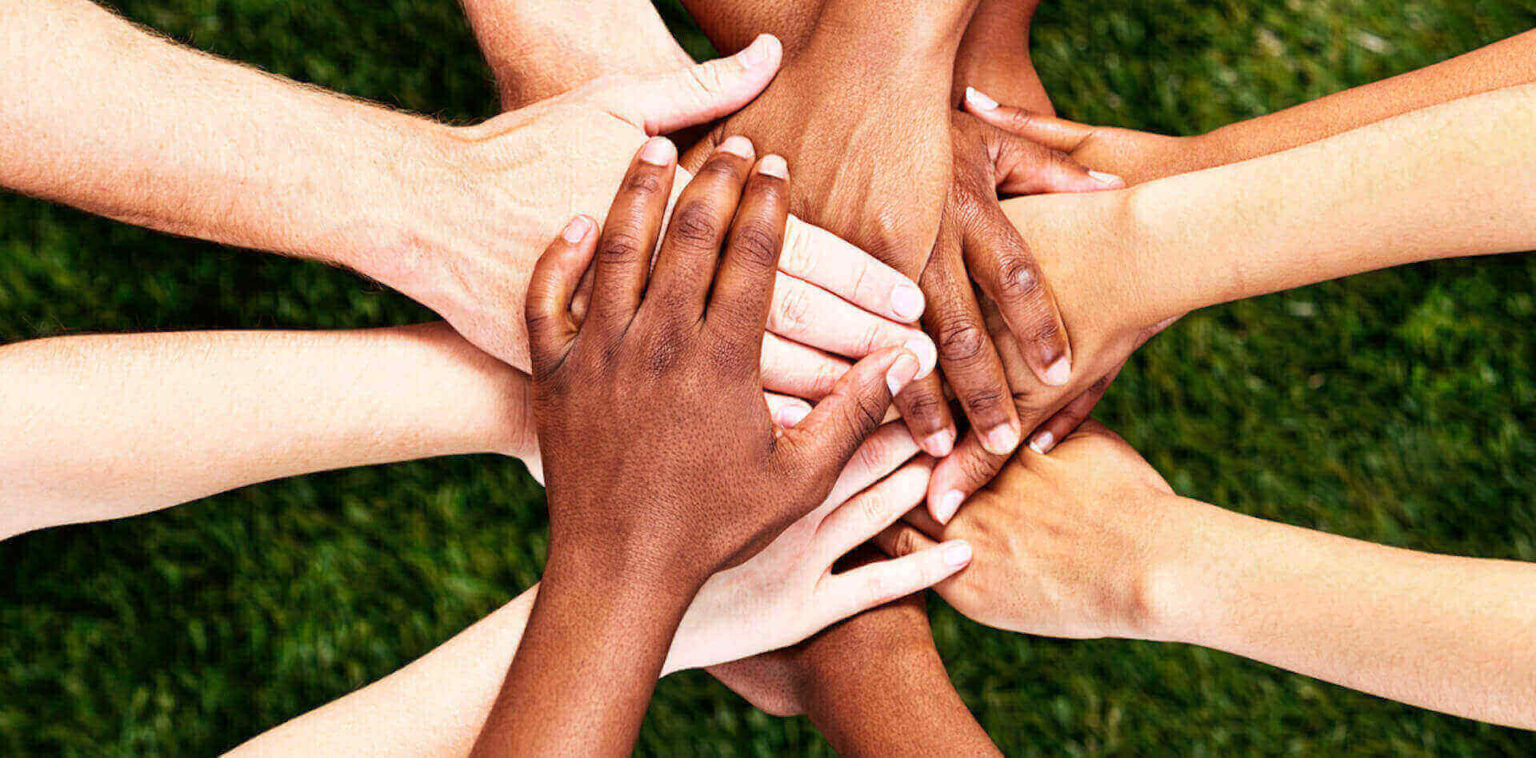
Over the past decade, ILGA-Europe has embarked on a learning journey to become an organisation that genuinely adopts an intersectional approach in all its work. But what does true intersectionality mean, and how can it be integrated into the work of the LGBTI activist movement?
This blog is based on a conversation between former ILGA-Europe team member Valeria Santostefano, former Executive Director Evelyne Paradis, and our new Executive Director Chaber for a special Frontline podcast episode in which they discuss our organisation’s journey over the past two decades towards adopting a more intersectional approach in our work.
Understanding intersectionality
Intersectionality, a concept coined by leading scholar of critical race theory, Professor Kimberlé Crenshaw, is a framework that recognises how various aspects of our identities, experiences, and backgrounds impact our lives, opportunities, and access. It emphasises that people are multifaceted, acknowledging that factors such as race, gender, sexuality, and class intersect to shape unique experiences of discrimination and privilege.
ILGA-Europe’s journey
ILGA-Europe has always recognised the need to include diverse voices and experiences. However, it was only in the mid-2010s that we began to critically question our own structures and practices. According to Evelyne Paradis, who was Executive Director of ILGA-Europe at the time, this shift involved reassessing the organisation’s practices to ensure inclusivity, rather than expecting others to fit into the existing structure.
Six ways ILGA-Europe has grown in practicing intersectionality
1. Recruitment practices
ILGA-Europe made a concerted effort to attract a diverse pool of applicants by re-evaluating our recruitment criteria and processes. We adjusted criteria to be more inclusive, removing barriers such as requiring certain levels of formal education or specific work experiences.
2. Event accessibility
During our annual conference and other events, we have implemented measures to ensure accessibility for all participants. This includes providing materials in multiple languages, ensuring venues are accessible to people with disabilities, and offering travel grants to individuals from underrepresented communities.
3. Advocacy and policy work
ILGA-Europe has broadened its advocacy to include issues that intersect with LGBTI rights, such as socioeconomic inequalities, asylum and refugee rights, and access to healthcare. By working alongside other organisations focused on these areas, we aim to address the multifaceted nature of discrimination and ensure a holistic approach to human rights.
5. Rainbow map recalibration
We recalibrated the Rainbow Map to place less emphasis on marriage equality and more on other critical issues such as legal gender recognition, hate crime legislation, and access to asylum. This shift recognises that while marriage equality is important, other areas require attention to achieve true equality.
6. Changes based on feedback
Chaber, the new Executive Director of ILGA-Europe, emphasises the value of receiving and acting on critical feedback. Detailed feedback that highlights unseen areas and areas needing improvement is crucial for understanding how to better support and represent underrepresented communities.
Building blocks for intersectionality
Building a learning organisation has been a fundamental aspect of our development. This involved dedicating time and resources to reflection and improvement, forming a working group on diversity and incorporating intersectionality into our annual planning. We also emphasise the importance of clear communication about our mission. While we are primarily an LGBTI rights organisation, we adopt an intersectional approach to ensure that our advocacy and support encompass a broad range of issues affecting our community. This includes addressing socioeconomic inequalities, working on issues of asylum and refugees, and engaging in broader human rights advocacy.
Sharing our learning with the wider movement
Recognising the value of not only integrating our learning around intersectionality in the materials we provide to help build the movement, such as publications, toolkits and skills boosts, we have published a number of resources on the ILGA-Europe Hub, which provides free and easy-to access learning cards, including on how to integrate intersectionality in your organisation, in policy and advocacy work, in recruitment processes, and in communications. The Hub intersectionality cards can be found here. If you don’t already have an account on The Hub, it’s a completely free-of-charge resource that’s super easy to join.
Moving forward
Starting small, such as having conversations about intersectionality within teams, can build into more substantial change. ILGA-Europe remains committed to this ongoing process, continually exploring how to make our work more accessible and representative of the diverse LGBTI community.
For a more in-depth discussion on how ILGA-Europe has worked to integrate intersectionality across all our work, listen to our special episode of The Frontline podcast.
EU Election results: The challenges & opportunities
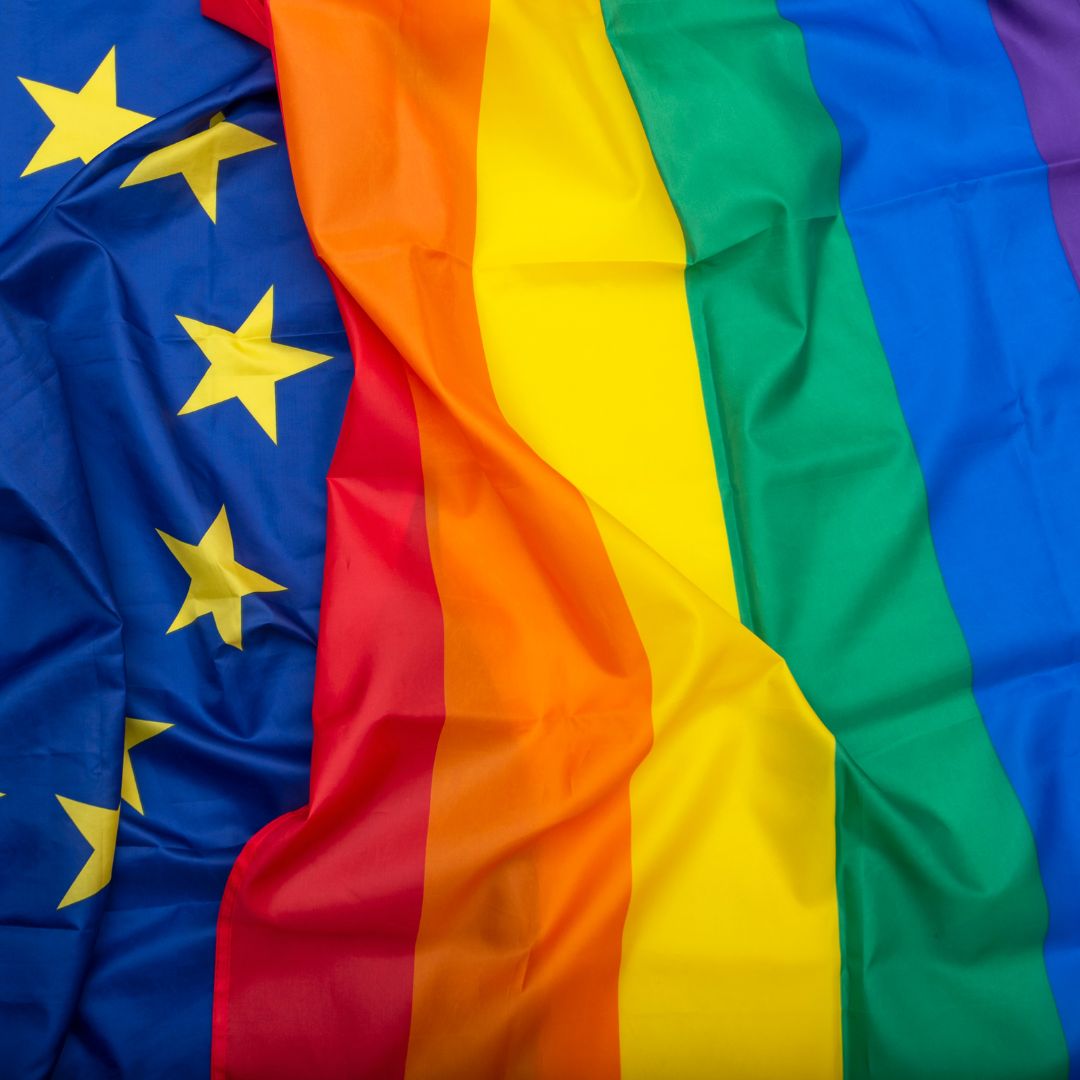
Today we dive into the mixed results of the European Elections, the shift to the far right in national elections, and the potential impact of it all on LGBTI human rights in the EU and beyond.
This blog is based on a conversation between our Advocacy Director, Katrin Hugendubel, co-chairs of the LGBTI Intergroup at the European Parliament, Marc Angel and Kim van Sparrentak, and activists Luca Dudits from Hungary and Roberto Muzzetta from Italy for a special Frontline podcast episode.
The results of the recent European Elections, which weren’t the radical shift to the far-right that was being predicted, revealed a mixed picture for LGBTI rights advocates. Marc Angel and Kim van Sparrentak expressed cautious optimism. While their personal victories and the re-election of LGBTI allies in their respective countries gave them cause for celebration, the broader rise of the far right across Europe remains a significant concern. Both stressed the need for strong collaboration with civil society and activists to counteract this trend and protect human rights.
Turning points in Hungary and Italy?
In Hungary, the challenged to Viktor Orbán’s government by Péter Magyar — a former ruling party insider-turned-rival — and his Tisza party marked a significant development. Magyar secured a substantial portion of seats, indicating a shift in the political dynamics that could open new avenues for advancing LGBTI rights. Luca Dudits from Hatter Society described the election as one of the most exciting campaigns in recent history, reflecting a growing political engagement among those opposed to Orban’s policies. However, she was cautious in her assessment of Magyar, who failed to mention LGBTI human rights in his campaign and made broad references to tackling propaganda. Whether this is the anti-LGBTI propaganda spread by Orbán or percieved ‘LGBTI propaganda’ remains to be seen. Dudits said that activists in Hungary will be engaged over the coming months in seeking to make contact with Magyar and his party to ascertain their commitment.
Italy also witnessed a blend of hope and caution. Roberto Muzzetta from Arcigay noted the substantial effort put into mobilising the LGBTI community by Italian activists, resulting in a greater presence of LGBTI allies in the European Parliament. Despite this, the far-right influence remains strong, particularly with Giorgia Meloni’s continued dominance. However, according to Muzzetta, the rise of progressive voices provides a counterbalance that could influence future policies and elections.
Challenges from the far-right surge
The election results across Europe show a worrying trend: the significant gains made by far-right parties. This shift is not only visible at the EU level but is also permeating national politics in countries like France, Germany, Austria, and the Netherlands. Such a trend poses direct threats to the advancement of human rights, particularly for the LGBTI community.
Kim van Sparrentak and Marc Angel, re-elected MEPs and co-chairs of the LGBTI Intergroup, expressed their concerns about this political shift. They emphasised the need for strong collaboration with civil society and activists to counteract the far-right rhetoric. They highlighted the importance of building majorities with allies who support human rights and resist anti-gender rhetoric, warning against the potential realignment within the European People’s Party (EPP) that could jeopardise LGBTI rights.
Strategic responses and solidarity
A strategic and united response to the rise of far-right politics is crucial. Marc Angel stressed that the EPP must avoid collaboration with far-right populists to maintain the integrity of the European Parliament’s commitment to fundamental rights and the rule of law. He called for the parliament to remain a strong advocate for democracy, particularly given the anticipated conservative shift within the European Commission.
Civil society and grassroots activism were identified as crucial elements in this struggle. The tireless work of activists on the ground, often in hostile environments, provides the backbone for advancing LGBTI rights. Kim van Sparrentak underscored the importance of maintaining strong networks within the European Parliament and across member states to support these activists.
Roberto Muzzetta emphasised the importance of consistent and balanced human rights advocacy by European institutions. He called for careful language use by politicians to avoid further polarisation and to support inclusive discourse on LGBTI issues.
Looking forward with hope
Despite the challenges, the resilience and determination of activists and supportive politicians offer some hope. Both Marc Angel and Kim van Sparrentak are committed to fostering a strong LGBTI intergroup in the European Parliament and working closely with activists to continue the fight for equality. They stressed the importance of mobilising the silent majority to stand against far-right rhetoric and support inclusive policies.
Luca Dudits and Roberto Muzzetta echoed these sentiments, highlighting the value of international solidarity and learning from each other’s experiences. They stressed the need for continued support from European institutions and the importance of framing LGBTI rights in terms that resonate with broader values like safety, love, and freedom.
The political landscape in Europe is rapidly evolving, presenting both opportunities and challenges for the LGBTI community. While the rise of the far-right is concerning, the solidarity and strategic efforts of activists and supportive politicians provide a pathway forward. By continuing to build alliances, advocating for inclusive policies, and mobilising broader support, there is hope for advancing LGBTI rights across Europe.
Listen to the podcast here.
Joint Statement: Milestone for trans and intersex rights in Europe
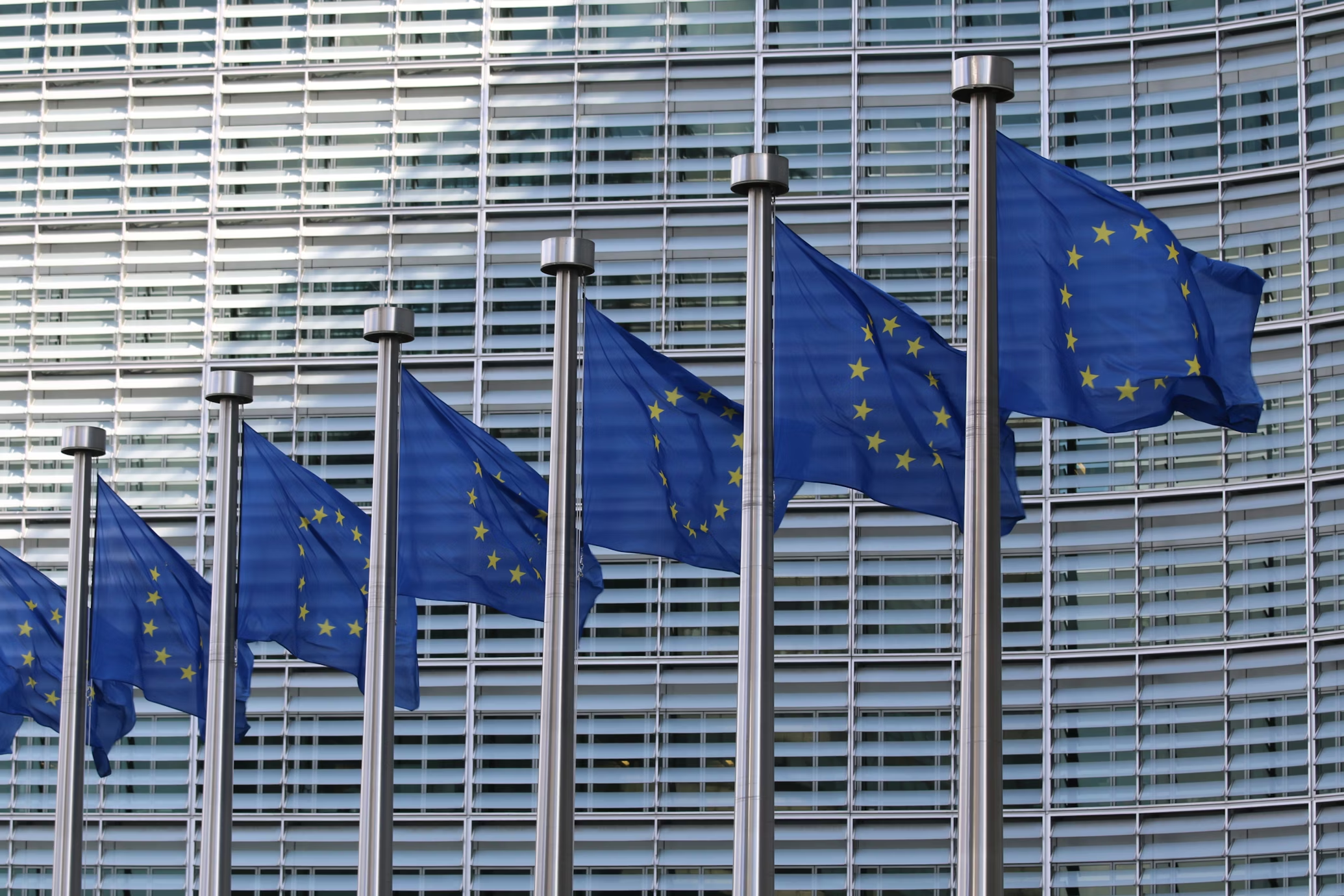
ILGA-Europe, TGEU, OII Europe, IGLYO and EL*C jointly welcome the inclusion of SOGIGESC grounds in new EU Directive on minimum standards for equality bodies
On 7 May 2024, two new directives on minimum standards for equality bodies were officially adopted by the EU. One of the directives includes in its recitals and articles the grounds of gender expression, gender identity and sex characteristics in addition to sexual orientation. This marks the first time sex characteristics have been mentioned explicitly in an EU directive, and the second time gender identity and gender expression have been mentioned in an EU directive.1 This is an important milestone for the protection of LGBTI people in EU legislation, and follows two years of joint advocacy on these directives by OII Europe, TGEU, ILGA-Europe, EL*C and IGLYO.
The two new directives amend existing EU laws in order to add provisions to strengthen the role and independence of equality bodies in the EU, setting minimum standards regarding their mandates, tasks, independence, structure, powers, accessibility and resources. Both directives are subject to EU primary law including the Treaties and the Charter of Fundamental Rights (CFR). Article 19 TFEU and Article 21 CFR include sexual orientation in the list of protected grounds against discrimination, therefore both new directives cover the grounds of sexual orientation as regards the mandates of equality bodies in the EU.
However, we need to go beyond this to properly address the reality of discrimination. Limiting equality bodies’ mandates to working only on the grounds of discrimination explicitly named in the EU treaties means that many causes of discrimination are left out, remaining unrecognised and therefore not properly addressed. In the case of LGBTI people, who face discrimination based on their sexual orientation, gender identity, gender expression or sex characteristics (or a combination of these grounds), not including gender identity, gender expression and sex characteristics in the mandates of equality bodies means that equality bodies cannot properly address discrimination faced by trans and intersex people. In a time when discrimination against LGBTI people is on the rise, this is a welcome move.
Together, OII Europe, TGEU, ILGA-Europe, EL*C and IGLYO advocated for references to the grounds of gender expression, gender identity and sex characteristics to be included in both new directives.
Directive 2022/0401 amends directives in the field of equal treatment between persons irrespective of their racial or ethnic origin, equal treatment in matters of employment and occupation between persons irrespective of their religion or belief, disability, age or sexual orientation, equal treatment between women and men in matters of social security and the access to and supply of goods and services. This new directive required unanimous agreement in the EU Council. Despite references to gender identity, gender expression and sex characteristics being included in the text proposed by the European Parliament, due to opposition from a small number of EU countries, these references did not make it into the final text.
However, for the second Directive, the references did make it into the final agreed text. Directive 2022/0400 amends existing Directives 2006/54/EC and 2010/41/EU which cover the implementation of the principle of equal opportunities and equal treatment of men and women in matters of employment and occupation, including self-employment. This directive required qualified majority voting in the EU Council. Therefore, the references to the grounds of gender identity, gender expression and sex characteristics were included in the adopted text, in the context of the definition of a victim of discrimination:
Recital 23
“In addition to prevention, a central task of equality bodies is to provide assistance to victims of discrimination. Victims should be understood to encompass all persons who consider that they have experienced discrimination as referred to in Article 4 of Directive 2006/54/EC or in Article 4 of Directive 2010/41/EU, irrespective, for example, of their socio-economic status, political opinion, age, health, nationality, residence status, language, colour, level of literacy, gender, gender identity, gender expression or sex characteristics.”
Article 6
“Member States shall ensure that equality bodies are able to provide assistance to victims as set out in paragraphs 2 to 4. For the purposes of this Directive, ‘victims’ mean all persons, irrespective, for example, of their socio-economic status, political opinion, age, health, nationality, residence status, language, colour, level of literacy, gender, gender identity, gender expression or sex characteristics, who consider that they have experienced discrimination within the meaning of Article 4 of Directive 2006/54/EC or Article 4 of Directive 2010/41/EU.”
What’s next?
This achievement marks a milestone in the recognition of trans and intersex people in EU legislation and policy-making, and will contribute to further protection against discrimination for LGBTI people by equality bodies across the EU. We also extend our thanks to Equinet, the European Network of Equality Bodies, which led a successful campaign on these directives and supported our calls for the inclusion of the grounds of gender identity, gender expression and sex characteristics, based on the reality of discrimination against LGBTI people in the EU, as well as existing EU policy, legislation, and decisions of the EU Court of Justice. We will now work together with relevant authorities on the effective transposition of the equality bodies directives and we will continue to advocate for more comprehensive protection for LGBTI people in EU policy and legislation.
Joint Statement on the Council of Europe Gender Equality Strategy 2024-2029

ILGA-Europe and EL*C welcome the Council of Europe Gender Equality Strategy 2024-2029, launched yesterday in Strasbourg.
The Strategy includes a clearly intersectional approach that explicitly includes discriminations based on sex and gender and SOGIESC grounds, especially LBTI women. It also contains a commitment to leave no one behind and to achieve a gender-equal Europe for everyone. Crucially, the Strategy specifically identifies anti-gender and so-called “gender-critical” narratives as being used as tools to promote a broader agenda of opposing gender equality and women’s rights, while justifying “discriminatory practices and policies against individuals who challenge traditional gender roles and norms”.
For this reason, the Strategy adopts an intersectional approach in policies combating against violence against women and in data collection, while specific actions on LBTI women include the promotion of access to justice, actions concerning socio-economic rights and cooperation with relevant sectors and organisations to remove discrimination, sexism and gender stereotypes. The Strategy also specifically addresses the needs of GBTI men for the first time.
ILGA-Europe and EL*C, as the INGO Conference Representative to the Gender Equality Commission and an Observer of the Gender Equality Commission, respectively, worked collaboratively to achieve a strong, LGBTI-inclusive Strategy. The work done together with Member States and the Council of Europe representatives has led to a Strategy that commits the Council of Europe to address gender equality together with the equality for LGBTI persons and other persons subject to multiple marginalisation. In the current socio-political context and with the rise of far-right and anti-gender narratives, it is key that these commitments are implemented. We will continue working with the Council of Europe and Member States to ensure this implementation in the next years.
The Council of Europe Gender Equality Strategy 2024-2029 can be found here.
Keep Calm and Communicate: LGBTI Activists Share Crisis Communication Tips
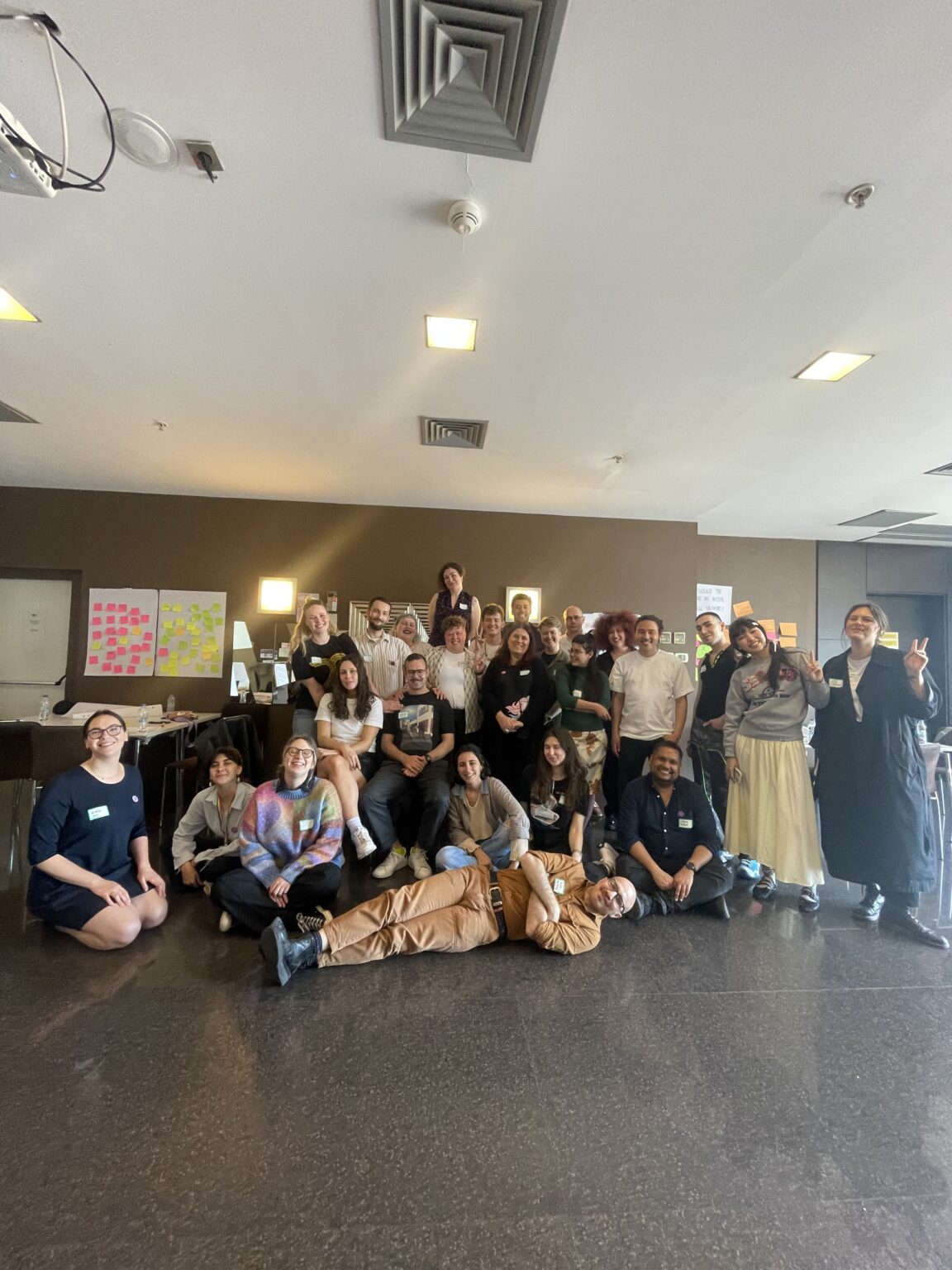
Last month we brought together 25 activists from over 15 countries to discuss and learn all about communicating in times of crisis. With Pride season upon us, and the challenges Pride events can bring for queer activists and organisers, this blog presents the key takeaways.
Pride season is here, and the LGBTI community is busy getting ready to both celebrate and assert visibility across Europe. But we are living through a time in many countries when LGBTI people are being scapegoated, which brings challenges amid the celebrations for many Pride organisers.
In May, ILGA-Europe hosted a two-day learning event on crisis communication for LGBTI organisations from across Europe and Central Asia, which we entitled ‘Get Ready!’. This gathering was an opportunity for 25 activists from over 15 countries to come together and address the complex challenges they face when communicating to their communities, the media and other stakeholders at times of crisis.
The group of passionate activists from diverse backgrounds demonstrated the power of collaboration during our time together. This created a profound sense of solidarity and mutual understanding and the room was alive with the exchange of expertise, self-care tips, and strategic ideas, leading to new collaborations and strengthened networks.
During our discussions we learned that the diversity of challenges faced by LGBTI organisations in crisis communication is vast and complex, but the participants highlighted five key issues that are similar across different countries and contexts. They are:
Balancing conflicting interests
Organisations often operate in regions with significant political and social tensions. This requires carefully navigating their messaging to address both local and international audiences without alienating either.
Fragmentation and internal conflicts
Many movements suffer from internal fragmentation, making unified communication difficult. Differing priorities and approaches within the community can lead to inconsistent messaging and weakened responses during crises.
Targeted campaigns and opposition
Advocacy campaigns frequently attract opposition from various groups, including TERFs (trans-exclusionary radical feminists) and anti-gender movements. These groups often launch coordinated attacks, which leads to the necessity of having both proactive and reactive strategies to mitigate their impact and protect the community.
Social media and digital threats
The digital landscape presents unique challenges, from social media posts being reported and accounts being suspended to full-blown smear campaigns. Organisations must be adept at digital crisis management, swiftly countering misinformation and protecting their online presence.
Polarisation and backlash
In many regions, the rising tide of anti-gender rhetoric and the instrumentalisation of LGBTI issues by political actors create a highly polarised environment. Navigating this landscape requires not only strong messaging but also the ability to build and maintain alliances in a hostile atmosphere.
These challenges illustrate the layered nature of crisis communication within the LGBTI activism and advocacy space. Organisations are called upon develop tailored strategies to address unique circumstances in their own contexts, while drawing on shared experiences and collective wisdom. It’s also important to acknowledge that security risks, particularly around public events like Pride marches, heavily burden activists. Although these are not primarily crises, they significantly impact the overall environment in which LGBTI organisations operate.
Key Tips and Tricks for Effective Crisis Communication
During the training, activists shared a wealth of strategies for tackling these challenges, which we captured on video. We asked participants to remember the moments of stress, panic and hard times they experienced, and then to envision talking to a young activist facing a communication crisis for the first time. The result is a collection of universal and empowering tips by activists for activists to help keep your head up during a crisis.
1. Define your audience
Tailor your message to ensure it resonates with your specific target audience, such as sympathetic media outlets, supportive community groups, and potential allies within the general public.
2. Know your community
While it’s important to communicate with the broader public, never forget that your primary responsibility is to support and uplift the LGBTI community. Your people need to know you have their back.
3. Rely on your support network
The strength of the LGBTI movement lies in its solidarity. Your chosen family, friends, mentors, and colleagues are invaluable resources in times of crisis. They can mentor you, talk things through, offer help and comfort, and step in if you need to step back. Sharing the burden of these responsibilities can lighten the load significantly.
4. Stand in solidarity with other LGBTI organisations
In a crisis, consider others who are also impacted and their potential responses and strategies. Collaborating with other LGBTI organisations, showing solidarity, mutual support, and a unified response will strengthen our collective resilience.
5. Maintain a healthy distance
LGBTI activism often intertwines with personal identity, making it essential to keep a clear boundary between doing the work and living your life to avoid burnout. Remember that you are more than your work and activism, and it’s okay to step back when necessary.
6. Take It step-by-step
Crisis situations can be overwhelming, but it’s crucial to stay focused on your message. Clear, calm communication is key to navigating through the storm.
7. Practice in private, be prepared in public
Doing a roleplay of a likely communications crisis situation can help you practice and take some stress out of a real situation. The Get Ready! participants took part in an exercise which tested their preparation, monitoring, diagnosis, and response to a hypothetical crisis. ILGA-Europe is developing this exercise to provide a resource to more LGBTI groups who want to prepare for communications crises. Join our Facebook group Communications support group for LGBTI activists to be up to date with any upcoming opportunities.
Navigating Equality: Unveiling the 2024 Rainbow Map
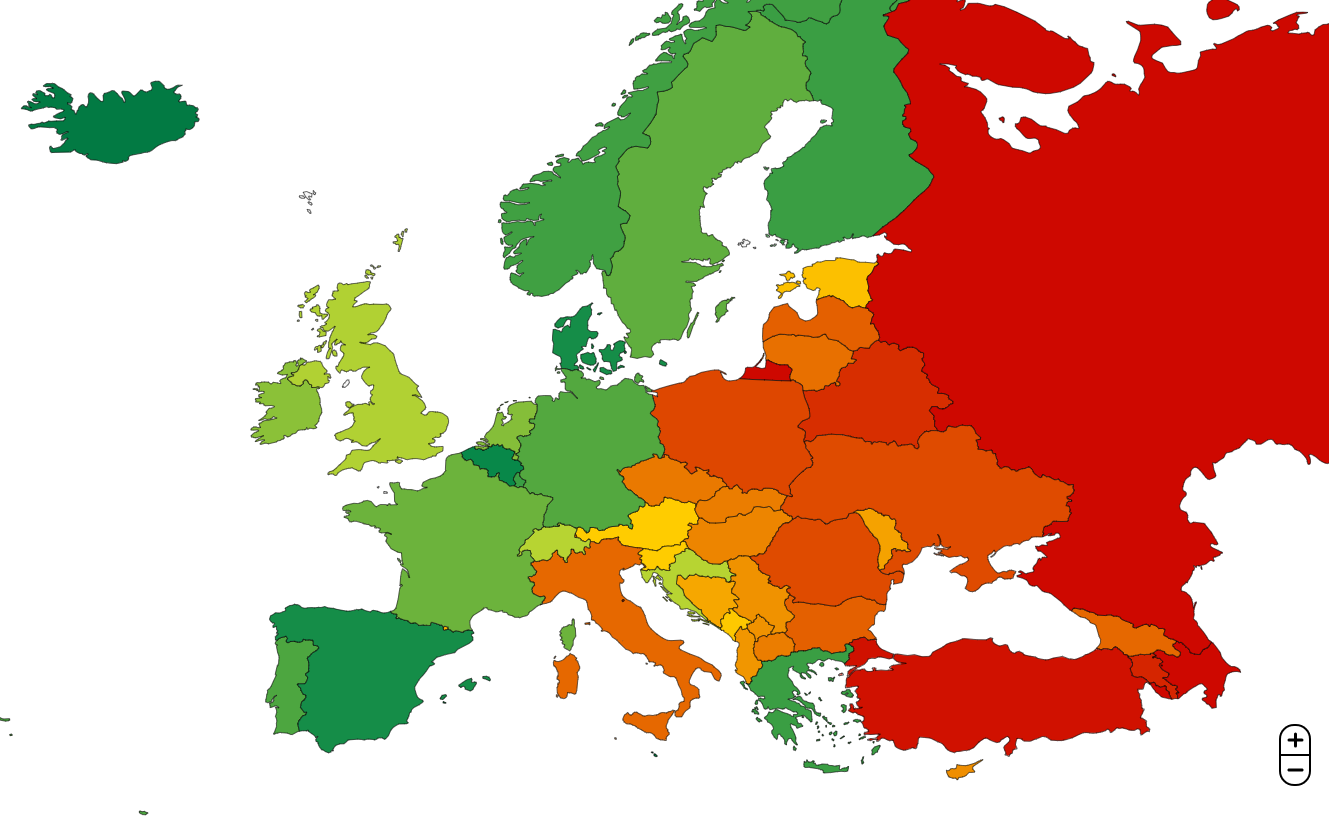
In the dynamic world of human rights advocacy, working together is essential. Last week marked a significant event of mass collaboration – the release of the 16th annual Rainbow Map of LGBTI human rights in Europe
The purpose of the Rainbow Map
At its core, the Rainbow Map is a tool of empowerment, designed to equip advocates with the knowledge needed to achieve change. With categories ranging from equality and non-discrimination to asylum rights, this resource serves as a compass, illuminating the path towards progress. Armed with the Rainbow Map, activists can leverage its insights to hold governments accountable, showcasing comparative data to drive policy reform and legislative action.
Stories of struggle and triumph
Behind every data point lies a narrative – a story of struggle and triumph, of setbacks and victories. The Rainbow Map is not merely a collection of statistics; it is a testament to the activism of LGBTI people across Europe for real change. Through the qualitative lens of ILGA-Europe’s Annual Review, the numbers come to life, providing context and depth to each country’s journey towards equality. When browsing each country in the Rainbow Map, you will find the Annual Review for the country under a number of themes.
The power of collaboration
The journey to publish the Rainbow Map each year is not a tale of an organisation in Brussels working alone. It’s a true example collective determination, and a display of LGBTI and allied teamwork across Europe, showcasing the strength of unity during tough times. More than 250 people, including activists, lawyers, and policymakers, contributed their expertise and passion to this project, which has become a go-to for anyone wanting to understand the development of LGBTI rights in Europe over the past 16 years. Their dedication and commitment to justice is woven into the very fabric of the Rainbow Map. This year, we made substantial progress by revamping the Rainbow Map’s interface and seamlessly integrating it with our ILGA-Europe website. This revitalisation reflects our commitment to continuous improvement, ensuring that users have access to the most user-friendly and informative platform possible.
Honouring the faces behind the numbers
As we continue our journey towards equality, equipped with the Map, let us remember the people behind the data – the activists who fight the good fight, the lawyers who litigate, the policymakers who advocate. Let’s honour their resilience, courage, and unwavering belief in a better tomorrow. As we navigate the complex landscape of LGBTI rights, let the Rainbow Map be our guidance, illuminating the path towards new successes.
How employee-led initiatives are positively impacting LGBTI equality
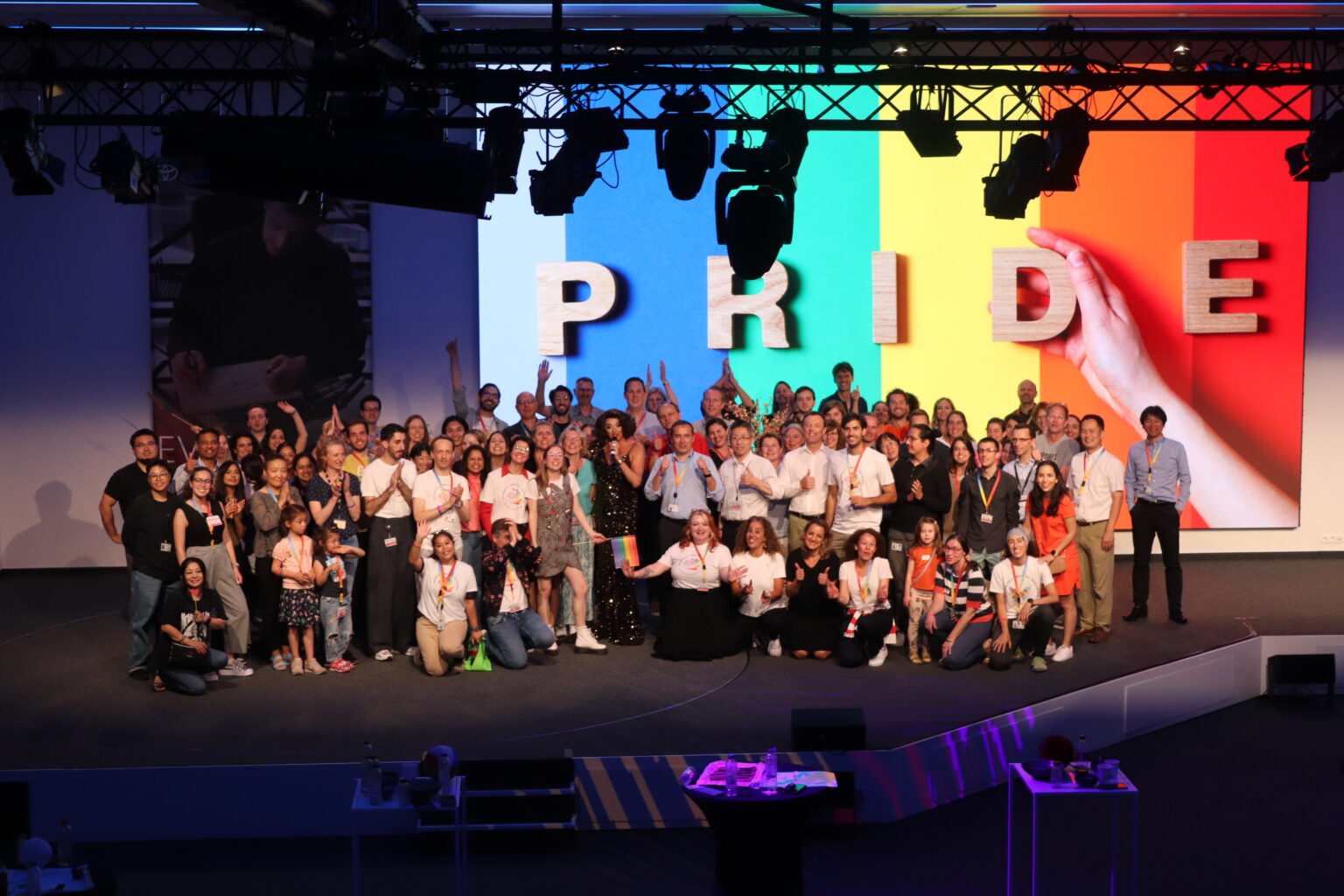
LGBTI staff groups organise social events for LGBTI staff and allies, raise awareness and push for more inclusive employment policies within their companies, but can also have an important role in supporting LGBTI activism
Increasing numbers of companies across Europe have LGBTI employee groups, sometimes known as LGBTI Employee Resource Groups or ERGs, providing supportive peer network for LGBTI staff members. Company leadership’s support for LGBTI staff groups is an indicator of the company’s values and commitment to diversity & inclusion. Support can look like official recognition of employee groups, allocating budget for activities, showing up and hearing issues raised, and committing to respect the rights of LGBTI people throughout the company’s operations.
It’s important that activities and support don’t stop at the company walls. Employee-led initiatives can have a positive impact not only on company culture but in broader society and for the LGBTI movement.
Employee-led initiatives at businesses across sectors are increasingly supporting the vital work of ILGA-Europe, as demonstrated in our freshly updated and launched ‘Partnership for Equality’ guide for companies. Initiatives can be serious, fun, innovative and really contribute to employee engagement on top of having a positive impact for the cause.
Examples of employee-led initiatives
For example, Toyota Motor Europe’s LGBTI staff group, called ‘All Colours of the Rainbow’, hosted a range of events to celebrate 2023 Pride, including taking part in the Brussels Pride march and throwing a fundraising drag show at their headquarters offices benefitting ILGA-Europe.
The Ipsos Pride Network organised an internal webinar, inviting a guest speaker from ILGA-Europe to talk about the situation for LGBTI rights across Europe, helping to raise awareness among colleagues.
Meanwhile, the team at easyJet also organised an online talk on LGBTI rights across Europe, with a speaker from ILGA-Europe, to raise awareness of the situation for LGBTI communities especially in the countries to where the airline flies. On a more fun note, the team also organised a bake-sale, dress-up day and gave colleagues the chance to have a go on a dance machine, all to raise money for ILGA-Europe.
Many companies have in place employee giving programmes, in which they match charitable donations made by employees. ILGA-Europe has benefitted from matched donations by employees from Google, Netflix, F5, Spotify, TripAdvisor, Apollo and many more. A wonderful example of making the most of employer matching comes from Hue, WP Engine’s LGBTQIA+ Employee Resource Group, who marked Pride with a range of activities from charity talks to a poetry slam and dance party. ILGA-Europe was one of their chosen charity beneficiaries for Pride, and WP Engine generously offered to match employee donations.
If you’re part of an LGBTI employee network, or inspired to start one, you can find more inspiring examples and tips for getting involved in ILGA-Europe’s Partnerships for Equality guide.
Ukraine, LGBTI rights and joining the EU
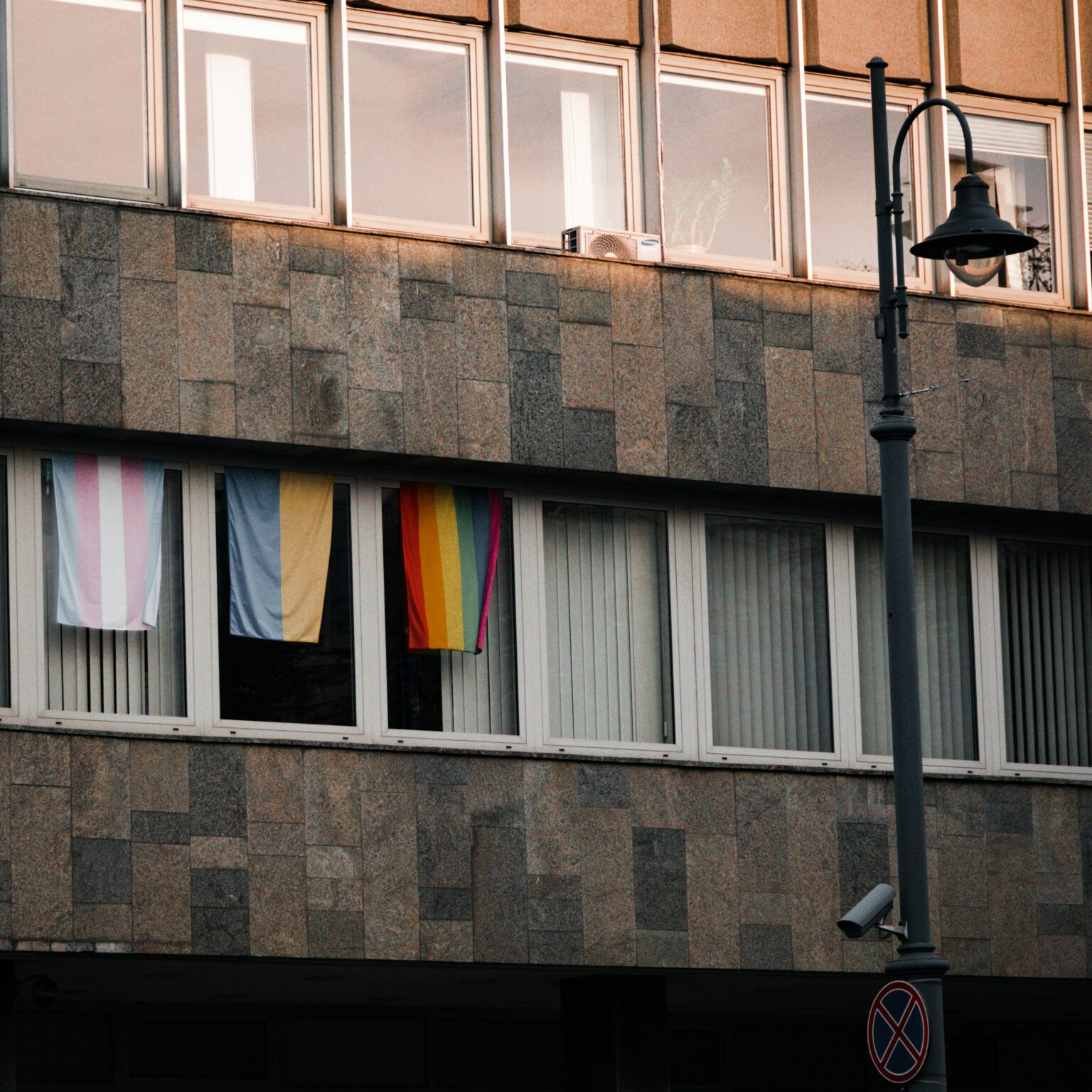
Last year, Ukraine became a candidate country to join the European Union. But the country’s lack of LGBTI rights threatens to hinder the process
As Ukraine charts its course towards European Union enlargement, it’s vital to focus on improving LGBTI rights in the country. While there’s notable support from society – with 72% of Ukrainians now supporting equal rights for LGBT people – and the international community, hurdles within the Ukrainian Parliament, the Verkhovna Rada, and the Ministry of Internal Affairs threaten to impede progress.
Despite significant strides, resistance persists within the corridors of power. This resistance not only undermines Ukraine’s commitment to EU integration but also poses a threat to the rights and freedoms of LGBTI people.
The leverage of the EU accession process cannot be overstated. The European institutions and EU member states have strength and influence to achieve change. By actively engaging with Ukrainian counterparts and lending their support to legislative initiatives aimed at safeguarding the rights of all individuals, the European Commission and Parliament, but also EU governments play a crucial role in Ukraine’s journey towards EU integration.
Recognition of same-sex partnerships
Recently, members of the European Parliament’s LGBTI Intergroup sent a letter to President Volodymyr Zelensky, showing their support for two important draft laws in Ukraine. These laws, if passed, could make a big difference for LGBTI people in Ukraine and bring the country closer to joining the EU.
One of these laws, Draft Law 9103 is the Legal Recognition of Same-Sex Partnerships. Beyond its legal implications, this would symbolise a monumental shift towards equality and non-discrimination, echoing the values espoused by the EU. If passed, it would provide legal protections and rights to same-sex couples, similar to those enjoyed by heterosexual couples, such as inheritance rights, medical decision-making authority, and financial protections – many of these rights reaching a new significance since the onset of the war in Ukraine.
Protection against hate crimes
Another crucial law mentioned in the letter and awaiting the decision of the Ukrainian Parliament, Draft Law 5488, is the Protection Against Hate Crimes – including those motivated by sexual orientation or gender identity. If enacted, it would provide legal protections to LGBTI people and other vulnerable groups who are targeted for violence or discrimination based on their identity.
In its judgment of 11 April 2024 in Karter v. Ukraine, the European Court of Human Rights ruled that Ukraine violated Article 3 (prohibition of inhuman or degrading treatment) in conjunction with Article 14 (prohibition of discrimination) in view of the ineffective investigation of two verbal and physical attacks of the applicant, a gay man, involving homophobic slurs. Further to the first attack, the authorities did not follow up on the applicants’ hate crime allegations and initially classified it as a robbery. The Court noted that the criminal-law classification the national authorities had chosen for the second attack as falling under the ordinary provisions of criminal law undermined their ability to uncover the alleged homophobic motive behind the attack.
The Court specifically considered the lack of explicit recognition of attacks motivated by sexual orientation as an aggravating circumstance in domestic criminal law in general and under Article 161 of the Criminal Code in particular and the difficulty that the absence of such recognition in domestic criminal law causes in the effective investigation of homophobia-motivated attacks. It considers that domestic authorities should “conduct the investigation taking all reasonable steps with the aim of unmasking the role of possible homophobic motives for the attack” as, otherwise, “prejudice‑motivated crimes would unavoidably be treated on an equal footing with ordinary cases without such overtones, and the resultant indifference would be tantamount to official acquiescence to or even connivance with hate crimes.”
This court ruling serves as another reason for Ukraine to prioritize and enact legislation aimed at addressing the issues highlighted, further emphasizing the urgency of legal reform in safeguarding the rights of LGBTI individuals. As Ukraine moves forward on its path towards European Union enlargement, the support of EU institutions and politicians is crucial in achieving meaningful change and upholding the principles of equality and non-discrimination. By enacting these laws, Ukraine not only strengthens its position on the path towards EU integration but also reinforces its commitment to human rights.
Roma and LGBTI: A spotlight on lived experiences
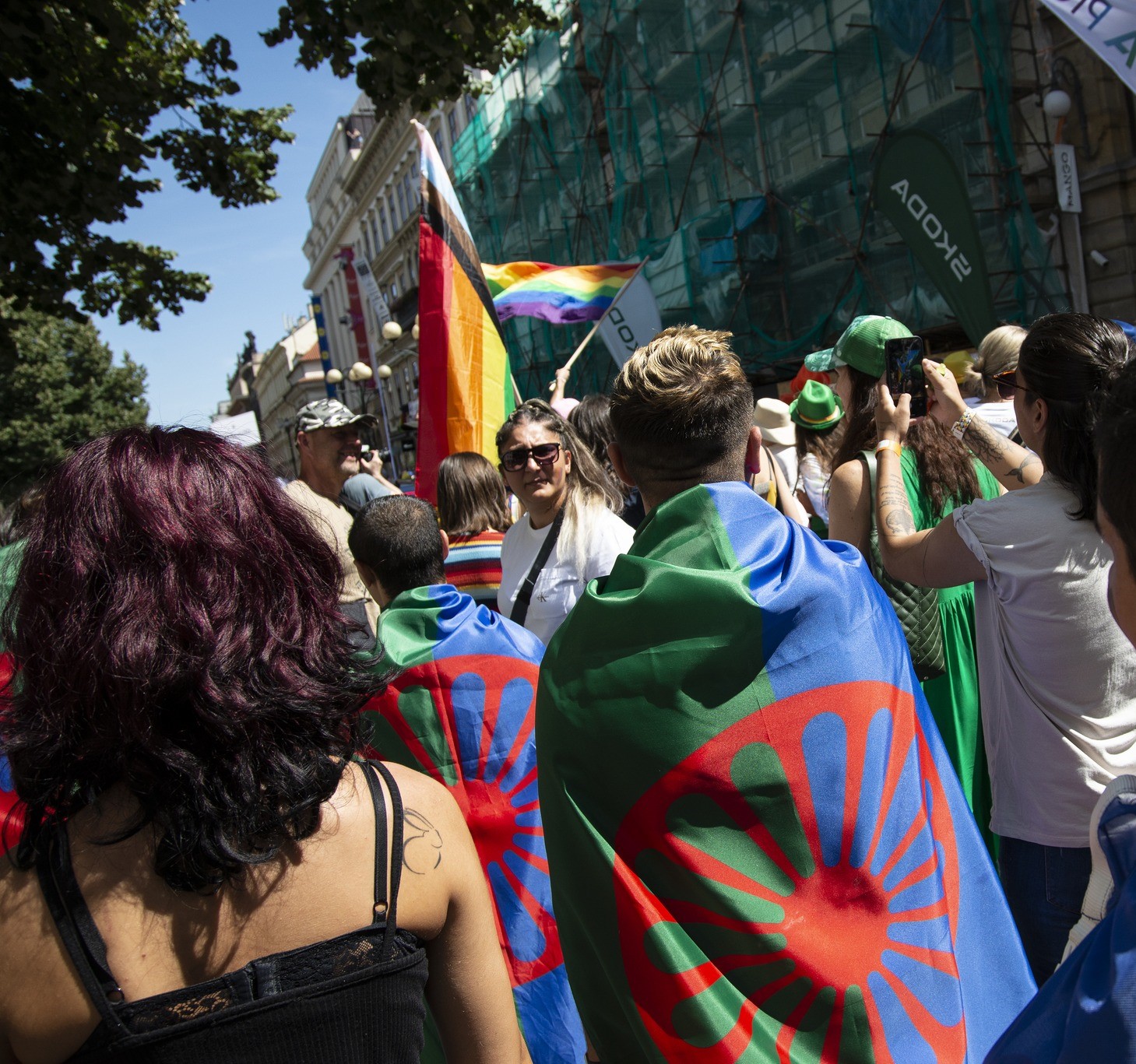
Today, as we mark International Roma Day, we celebrate a diversity of voices within the Roma LGBTI community, revealing the resilience, strength, and beauty of a community that is often silenced and made invisible
For Roma people who identify as LGBTI, their lives come with a unique set challenges and complexities. It is a journey that traverses the intersections of race, ethnicity, gender, sexuality, and culture, navigating landscapes shaped by centuries of marginalisation and discrimination.
Within the Roma community, where traditions run deep and cultural norms are fiercely upheld, the experience of being LGBTI can be particularly fraught, often leading to invisibility, rejection and isolation. Yet, despite these challenges, so many Roma LGBTI people, who can be open about who they are, carve out spaces of belonging.
In this blog, through a selection of resources, we are shining a spotlight on the lived experiences, struggles, and triumphs of Roma LGBTI community, offering insight, understanding, and solidarity.
Stories of LGBTQ+ People of Roma Origin by Ara Art
This collection delves into the real-life experiences of queer Roma individuals. From tales of triumph to stories of struggle, these accounts offer a wonderful and enlightening glimpse into issues of multiple discrimination, but also celebrate the joy of being LGBTQ+ and Roma.
Manifesto “A better place for Roma LGBT+ in social movements”
This manifesto, written by Roma feminists, queers, and allies, exposes the systemic racial inequalities and exclusion experienced by Roma LGBT+ individuals and calls for genuine representation, challenging existing power dynamics, and urging solidarity in combating racism and discrimination within social movements.
The Prague Declaration, published by Ara Art
A document from the First International Roma LGBTIQ Conference underscores the need to address discrimination faced by LGBTI Roma, Gypsy, Sinti, and Travellers across Europe, calling for the establishment of a joint European platform to advocate for their human rights.
Article by Lucie Fremlova about the book “Queer Roma: In-depth Insight into Their Lives”
Discussing the book, Queer Roma: In-depth Insight into Their Lives, published by Routledge, this article highlights the publication’s profound exploration of the complex intersections of anti-gypsyism, homophobia, and transphobia shaping the identities of queer Roma individuals.
Gypsy, Roma and Traveller LGBTQ+ Spoken History Archive by RCAC and ERIAC
This archive made by Romani Cultural & Arts Company (RCAC) and the European Roma Institute for Arts and Culture (ERIAC) presents a diverse collection of interviews, representing intersectional experiences of LGBTQ+ individuals within Gypsy, Roma, and Traveller communities worldwide. Ara Art offers commentary on the work, further emphasising the significance of its narratives and insightful discussions.
Intersectional Inequalities Faced by Romani Queer Women by Ahmad Al-Kurdi
Exploring the challenges confronted by queer Romani women in Eastern and Central Europe, highlighting the interplay between economic deprivation and symbolic injustices within this marginalised group.
Unveiling Inequality Experiences of LGBTI+ Travellers & Roma by Dr. Sarah Sartori
This peer-research initiative from Ireland unveils the experiences of exclusion faced by LGBTI+ Travellers and Roma, and represents the largest study of its kind in the country, engaging 57 participants through online surveys and focus group discussions.
The Roma minority and its status in selected EU countries (CZ, SK AND HU) by Ara Art
This report delves into the situation of LGBTQ+ individuals of Roma origin and presents an analysis spanning the Czech Republic, Slovakia, and Hungary, offering realistic recommendations and reflections on future developments.
Roma LGBTI, Feminist Movement and Scholarship by Dezso˝ Máté
Reflecting on the past 50 years of the international Roma movement, this volume traces the evolution of Roma cultural identity politics and civil rights activism.
We acknowledge that there are many lesser-known yet equally valuable resources on Roma LGBTi lives and experiences created by smaller organisations and communities. We extend an invitation to these groups to share their resources with us, so we can enrich our list even further and ensure a more comprehensive representation of the Roma LGBTI experience.
Joint statement: “Building an inclusive European Union of Equality”
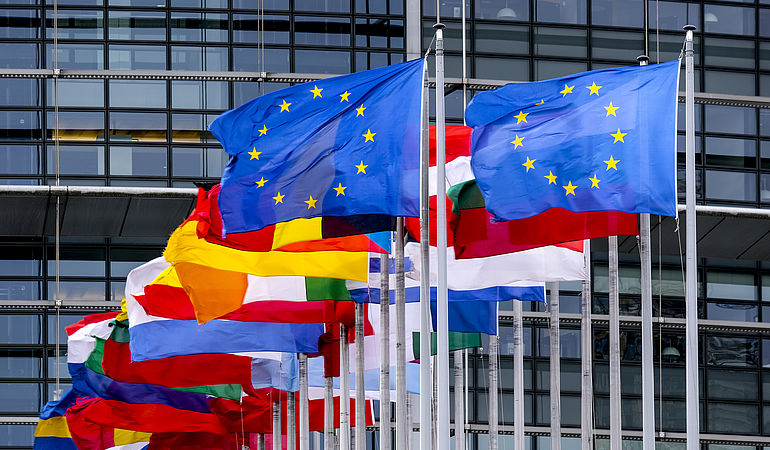
We, the undersigned equality and anti-discrimination organisations, call on the European Union’s leaders and European Institutions to ensure equality, anti-racism, and fundamental rights are a priority during the next legislative mandate.
We noted the advances in Equality which have been made by the European Union during this mandate. The appointment of the first-ever Commissioner for Equality was a welcome and much-needed initiative. It has shown that the European Commission is committed to advancing the values of equality enshrined in Article 2 of the Treaty on the European Union and to its duties under Article 10 of the Treaty on the Functioning of the European Union.
Equality and non-discrimination policies and initiatives became more visible and were addressed through several proposals such as standards for equality bodies, a Directive to combat violence against women, a legislative proposal on the European Disability Card and Parking Card, the action plan against racism, and a proposal for cross-border recognition of parental rights. These initiatives were coupled with strategies on gender equality, LGBTIQ and disability, as well as the EU Roma strategic framework and a Green Paper on Ageing.
However, the EU is far from being a Union of Equality- this is a work in progress, and right now, we witness rising backlash, racial injustice, inequality and discrimination. This needs urgent attention both at the EU and national levels.
For this, we specifically call on the European Union to put in place comprehensive legal protection against discrimination in the EU. We need to guarantee equality of treatment regardless of who you are or where you live in the European Union.
We also call on specific actions to guarantee that the European Union’s Institutions have adequate resources and staffing to prioritise and mainstream equality and non-discrimination, with special attention to vulnerable groups and intersectional discrimination:
- Appoint an EU Commissioner with a strong mandate for Equality and Fundamental Rights.
- Strengthen the European Commission’s services working on equality, non-discrimination and anti-racism, especially by establishing a new Directorate-General for Equality and Fundamental Rights.
- Revise and introduce strong strategies on all grounds under the Equality Framework beyond 2025 and ensure their mainstreaming in all policy areas.
- Ensure that the Equality Task Force has a strong mandate to ensure cooperation between different services on the implementation of the Equality Frameworks and that it works transparently and in close consultation and cooperation with European Equality networks.
- Host an annual “Equality Forum,” gathering policymakers, civil society, and other interested actors to evaluate and develop initiatives for realising a Union of Equality. The Forum should focus particularly on intersectional equality.
- Create an EU Council formation on Equality.
- Ensure the next EU budget properly funds civil society organisations working on equality, non-discrimination and anti-racism.
- Ensure discrimination is also addressed in the work of the EU in external action, international cooperation and humanitarian action.
We remind leaders that all initiatives must meaningfully involve equality organisations, anti-racism organisations and organisations representing the groups most subject to discrimination.
It is essential that the Union’s decision-making process is transparent, and organisations are properly resourced and supported to guarantee their active involvement.
It is also fundamental to ensure that staff working at the EU Institutions properly reflects the European population, not only in terms of nationality but also in terms of diversity of gender, race, ethnic or social origin, membership of a national minority, disability, age, sexual orientation, gender identity, gender expression, and variations of sex characteristics. We call on specific action to ensure it and to guarantee training to all staff training on equality and non-discrimination.
Only by working together will the European Union truly become a Union of Equality that reflects its motto of “United in Diversity”.
The undersigned organisations remain committed to supporting the European Institutions in achieving this crucial objective.
Signatories
- European Disability Forum
- ILGA-Europe
- AGE Platform Europe
- European Network Against Racism
- ERGO Network
- OII Europe
- IGLYO
- EL*C
- TGEU – Transgender Europe
Additional Information
- Joint statement: “Building an inclusive European Union of Equality” in Word
- Joint statement: “Building an inclusive European Union of Equality” in PDF
Organisations’ work on the European elections:
- European Disability Forum: “”Building an inclusive future for persons with disabilities in the EU”
- ILGA Europe: “Come out 4 Europe”
- AGE Platform Europe: AGE Manifesto for the 2024 European Parliament elections
- European Network Against Racism: “A Europe for All”
- ERGO Network: “End Racism to build a stronger Europe”
A new roadmap for advancing the human rights of trans and non-binary people
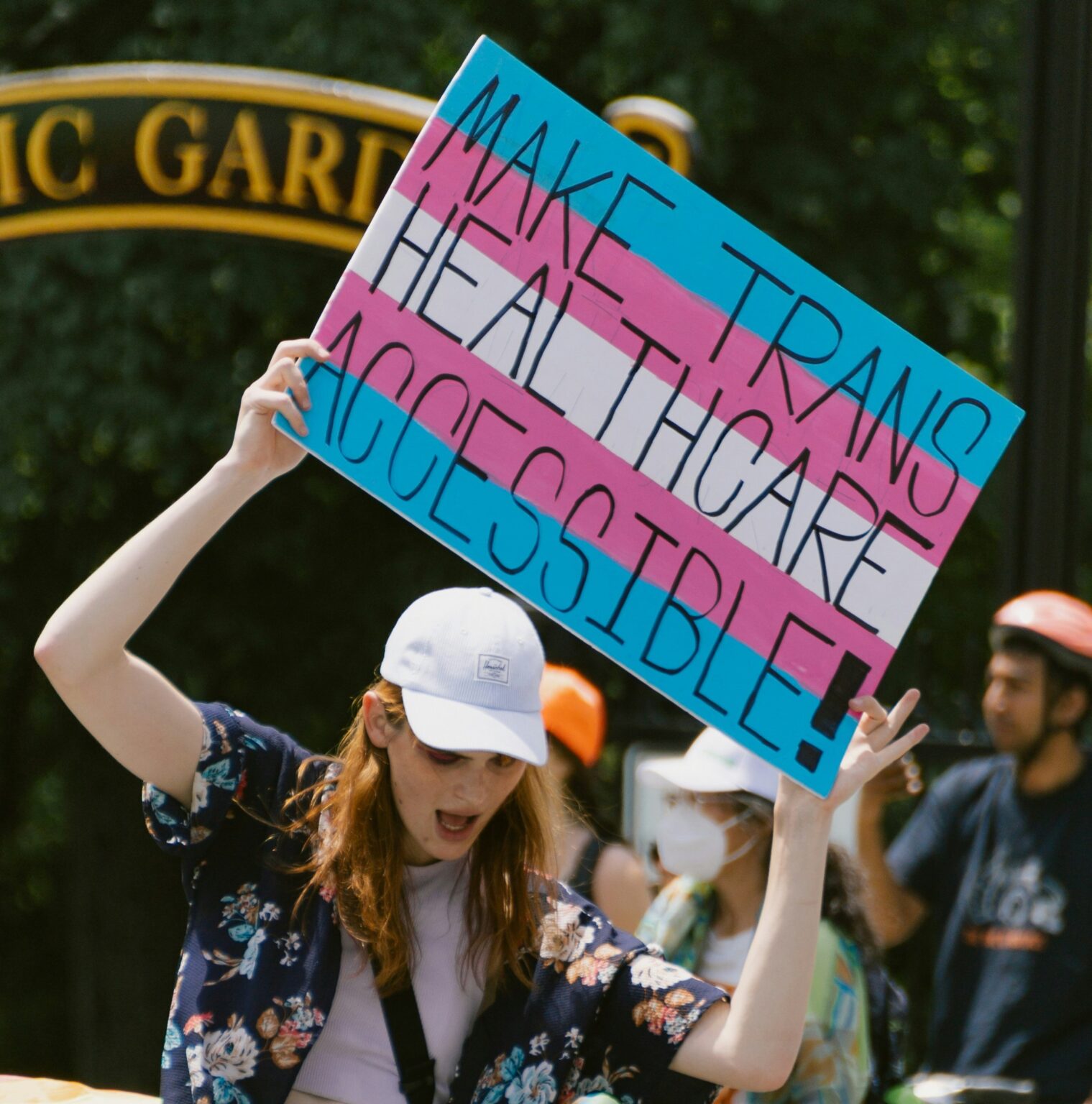
A brand new Issue Paper from the Council of Europe on Human Rights and Gender Identity and Expression not only sheds light on the challenges faced by trans and non-binary individuals across Europe and beyond, but also serves as a comprehensive tool for advocacy activism
The Council of Europe (COE) Commissioner for Human Rights, Dunja Mijatović, has released a new Issue Paper which thoroughly examines the challenges faced by trans and non-binary people across Europe. The Paper includes a wide range of insights, recommendations and analysis, offering a comprehensive overview of the landscape of the rights of trans and non-binary people in Europe and beyond.
The Paper includes 15 recommendations aimed at policymakers, legal professionals, civil society organisations, and other stakeholders, providing a clear roadmap for advancing the human rights of trans and non-binary people. These recommendations cover a wide range of demands activists have had for decades and cover a spectrum of directions, from fundamental reforms in legal recognition procedures, such as the removal of diagnosis and sterilisation requirements, to policy changes aimed at fostering greater inclusivity and respect for gender diversity, such as the call for the inclusion of non-binary gender markers on identity documents.
A dynamic new tool for change
This paper signals a renewed commitment of the COE to protecting the rights of trans and non-binary individuals, however, it is much more than that. It’s also a dynamic tool that provides a roadmap for advocacy efforts for legislative change. The 13 sub-chapters within the paper offer comprehensive analyses and recommendations, serving as robust advocacy tools in themselves, under these helpful headings:
• Enjoyment of human rights
• Equality and non-discrimination
• Gender identity and gender expression conversion practices
• Legal gender recognition
• Violence, hate crimes and hate speech
• Detention
• Family life
• Education
• Sport
• Employment
• Poverty and housing
• Healthcare
• Sanitation
• Asylum
Each sub-chapter is equipped with a wealth of references to human rights instruments, various studies, and laws, providing a solid foundation for advocacy work.
Let’s take recommendation No ’8 as an example:
Ensure that national laws prohibit discrimination due to gender identity and gender expression in all decisions relating to family life, including birth registration rules, custody, adoption and access to assisted reproductive technologies. When birth registration systems are gendered, trans people should be registered as parents in accordance with their gender identity, and alternative systems should continue to be explored to reflect the growing diversity of families.
Activists who have work on family rights for trans and non-binary people among their advocacy goals can go to chapter 2.6 in the paper, entitled Family Life. There are three subsections in the chapter: Parenthood, Parental status, and Trans families across borders. Each has references to case law or legal drafts and represents the Commissioner’s selection of arguments and resources that are most beneficiary to the cause.
In total, the paper includes 269 references, linked throughout. This not only demonstrates the depth of research underpinning the Issue Paper but also serves as a testament to its credibility and relevance in advocacy activism.
Powerful trans-inclusive terminology
The Paper also introduces a strong range of trans-inclusive terminology, ranging from “gender fluidity” to “non-binary identities,” thereby contributing to the normalisation and visibility of marginalised experiences. By embedding such terminology within a human rights framework, the paper not only validates the lived experiences of gender minorities but also challenges societal norms and stereotypes.
Consider the term “self-determination”, a concept prominently featured in discussions surrounding Legal Gender Recognition. This term, while commonplace in LGBTI activism discourse, holds profound implications for trans and non-binary individuals seeking autonomy over their gender identity. By unpacking such terminology within the Issue Paper, activists are equipped with the language and concepts necessary to articulate their demands and navigate legal and policy frameworks.
The importance of recognition
While LGBTI activists are intimately familiar with the gaps in trans and non-binary rights, it is of great importance that they are recognised and shed light upon in a forward-thinking paper from a human rights institution of such great influence, giving them further visibility across other movements and audiences. Through its comprehensive research, inclusive terminology, and actionable recommendations the Issue Paper on Human Rights and Gender Identity and Expression has every chance of contributing to our collective action in the advancing human rights of trans and non-binary people.
You can read the Issue Paper on Human Rights and Gender Identity and Expression here
Greece adopts historic bill introducing marriage equality
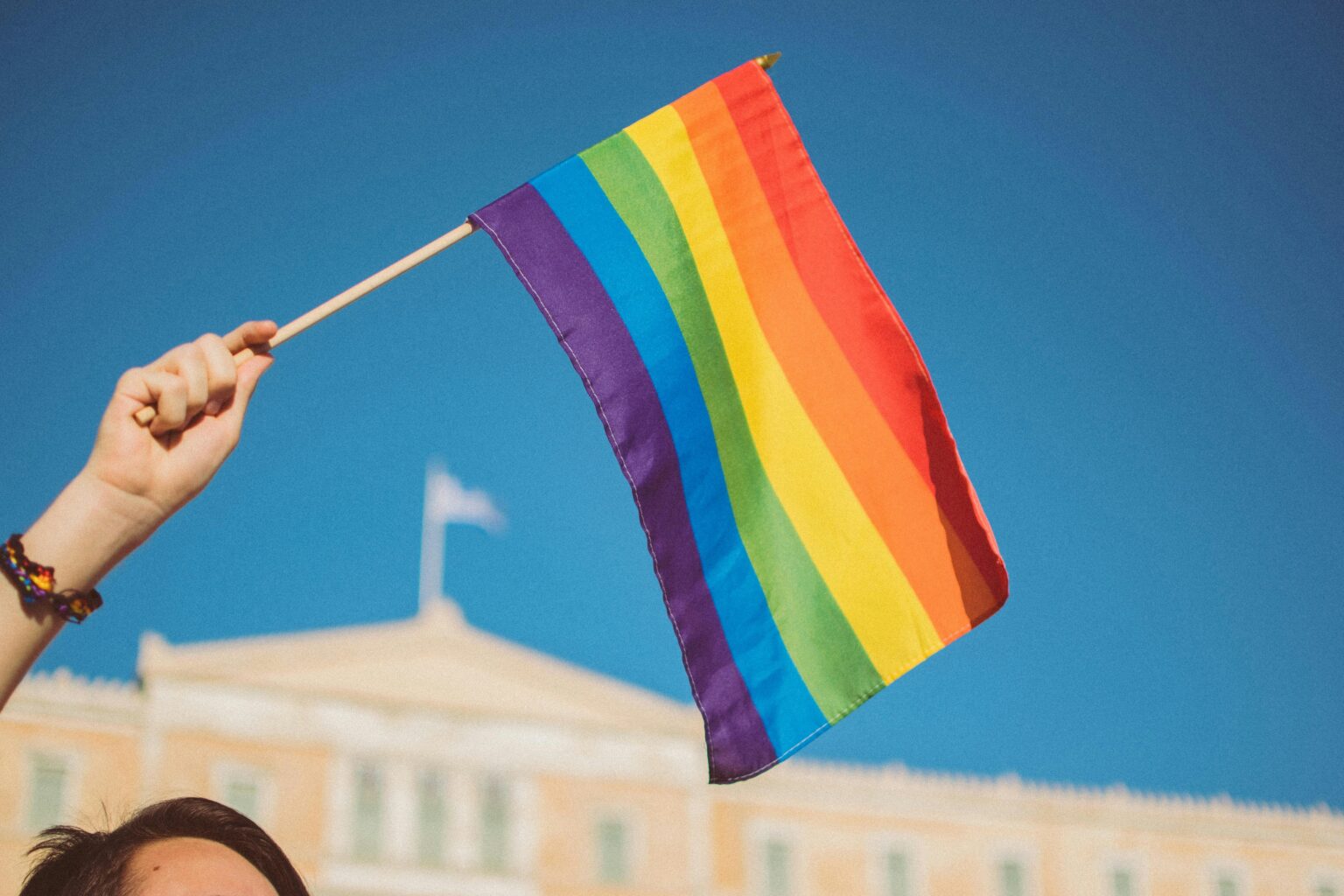
We welcome and celebrate with local activists the news that the Greek parliament has adopted an historic bill introducing marriage equality, granting marriage and adoption rights to same-sex couples, as well as fully recognising marriages that took place in other countries, and family ties of children who were born abroad to same-sex parents.
ILGA-Europe and NELFA welcome the news from yesterday, 15 February 2024, that the Greek Parliament adopted a bill introducing marriage equality.
This vote reflects the trend in Greek and European societies towards increasing equality for same-sex couples. The new marriage equality law will grant marriage and adoption rights to same-sex couples, as well as fully recognise all marriages and family ties of children who were born abroad to same-sex parents, and comes as a result of clear political leadership from the current Greek government.
The adoption of this law comes at a time when public acceptance of LGBTI people is on the rise in Greece and across Europe. In fact, an EU survey conducted in 2023 shows that public opinion in Greece as regards same-sex marriage is at an all-time high, marking also the largest increase in approval across all of the EU since the last iteration of the survey in 2019.
The law also follows a number of important legislative steps taken by the current Greek government to improve the access of LGBTI people to their rights and dignity, such as becoming the fifth European country to ban intersex genital mutilation (IGM) in July 2023, lifting the ban on men who have sex with men to donate blood in January 2023 and banning so-called ‘conversion practices’ against LGBTI minors and ‘vulnerable’ LGBTI people in May 2023.
Despite this important step towards equality for LGBTI families, the law does not remove all discrimination as:
- The law does not allow for access to in-vitro fertilisation (IVF) for same-sex couples of two women, meaning that the current discriminatory practice of only single women unable to conceive a child being able to access IVF in a Greek clinic, persists. This should also be made possible for same-sex couples made of two women, who also cannot conceive a child otherwise. Of the 19 EU countries which allow access to IVF for single women, the vast majority of them also allow access to IVF for female couples, coming to a total of 15. This reflects trends across the EU to ensure more equitable access to family and reproductive rights.
- Currently in Greece, altruistic surrogacy is available to opposite-sex couples only, creating a discrimination on the basis of sexual orientation i.e. gay men do not have equal access to the ability to have a child and form a family. The new law has not addressed this.
Greece’s adoption of marriage equality is a hugely important step for the recognition of equality of all couples, and a first step in achieving equality for all parents and people who wish to form a family. We encourage the Greek government to look at the remaining gaps in legislation and to propose measures to bring full equality for rainbow families in Greece.
Join statement by:
- ILGA-Europe
- NELFA – Network of European LGBTIQ* Families Associations











